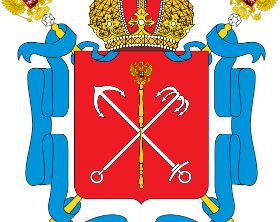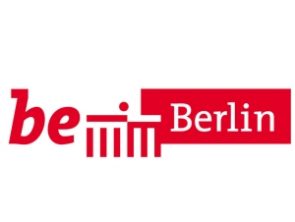1st International Urban Mobility Dialogue, 1st – 4th of November 2017, Kalkscheune Berlin, Germany
The International Urban Mobility Dialogue was held for the first time in November 2017. 180 participants enjoyed the familiar atmosphere and benefitted from deep and open-minded discussion within the Dialogue Sessions, the breaks and during the social gatherings. Most of them will return for the 2nd issue of the UMD. Please find below the cities, experts and partners of the UMD17.
Please navigate: The Cities – The Experts – The Partners
For your information and for getting an overview, what you can expect within this series of events feel free to download the UMD17 broschure.
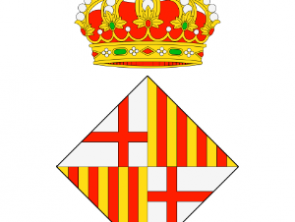
Barcelona, Spain
[tm_pb_section admin_label="section"][tm_pb_row admin_label="row"][tm_pb_column type="4_4"][tm_pb_text admin_label="Text" text_orientation="justified" use_border_color="off" border_color="#ffffff" border_style="solid"]
Barcelona, Spain
Represented by: Oscar Mauricio Chamat Nuñez, Coordinador implantación segunda fase carriles bici en Barcelona
Bicycle lanes network – Barcelona Town Hall Initiative
The extension of the cycling infrastructure is one of the main objectives that will allow the implementation of the measures of the Urban Mobility Plan (2013-2018). The aim of the Barcelona City Council is to reach the 308 kilometers of bike lane at the end of the mandate, which means an increase of 165% with respect to the starting point of the Bike Strategy measurement for 2015 (starting from the a plot of 116 kilometers). In this way, 95% of the city's population will have at least one bike lane 300 meters away from their home. For this reason, it is planned to carry out about 130 performances in streets and locations to achieve the total deployment of the cycle lanes network. In most of the points, new cycle lanes are set up, although in some areas, what will be done will be improvements or actions to signal bicycle streets (zones 30) or bicycle itineraries. Some of the projects that are being reviewed are already underway or in process, while others have not yet started. This is an initial proposal that will be defined according to the real needs of the network or connectivity, among others. To carry it out, a new cycle path design manual has been developed, with the aim of improving the safety of cyclists, reducing pedestrian conflicts, improving the connectivity of the new cycle lanes, signaling, regulation, design and all related aspects. Deployment of the bike lanes network In the framework of the Measurement of the strategy of the bicycle, the construction or prolongation of several cycle lanes is foreseen. Check the map of the current situation (July 2017) of the bike lanes, implanted and under construction, and the cycle routes.
[/tm_pb_text][/tm_pb_column][/tm_pb_row][/tm_pb_section]
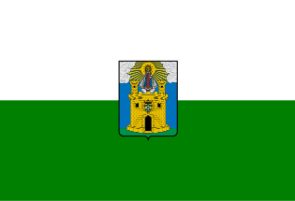
Medellín, Colombia
[tm_pb_section admin_label="section"][tm_pb_row admin_label="row"][tm_pb_column type="4_4"][tm_pb_text admin_label="Text"]
Medellín, Colombia
Represented by: Manuela Garcia, Technical Director, Secretary of Government and Cabinet Management
In recent years, Medellín has undertaken a process of growth and change in response to multiple challenges that have contributed to the city we have today.
Our city has always adapted to change and strives to face the many challenges and adverse situations that we have encountered. We seek to strengthen our capabilities and to confront these challenges through a process of strategic planning that identifies issues and designs multi-faceted comprehensive solutions from the security, coexistence, social cohesion, citizen culture, education, mobility, risk and territory management, information management, and sustainability.
The process of urban renewal and expansion as well an increase in the number of vehicles on our roads have generated a response to the challenges of human mobility and the need for development and improvement of our mass transportation systems. In this vein, Medellín’s concept is that the city should adapt to the needs of the present generation that demands a sustainable and co-responsible development. Our vision is to make mobility more efficient accessible and user friendly for the benefit of all.
Each day, the orientation of policy is to support new transport strategies with the lowest environmental, economic and social cost. We also strive to enhance and improve public spaces within the city for the enjoyment of our citizens and to integrate a multi-modal system of sustainable mobility, a process in which the different means of the transport are undertaken in balance with the environment.
The distribution of various modes of transport in the city reflects a culture of mobility that requires transformation to increase the use of environmentally sustainable means of transport.
For this to be achieved it is important to encourage the use of the Integrated Transportation System of the Valle de Aburrá (STIVA), we also strive to encourage the use of bicycles through dedicated networks and to generate more favorable conditions for pedestrians.
Medellín has adopted an Integrated Transportation System of the Valle de Aburrá (SITVA), which includes Metro, Metroplús, Metro Cable, Feeders, and Tram.
According to our studies, in 2014 the integrated system mobilized 180.557.640 user trips, equivalent to 44.04% of all passengers that used public transport in the city. In addition had a daily average of 1.120 vehicles in service.
In 2015 it is estimated that an average of 1.527.000 users were transported daily within our public transport network.
Of these, 47.0% correspond to the users mobilized in the SITVA.
By 2024, the POT's Sustainable Mobility Integral Plan hopes to modernize the public transport service (including all kind of buses) and by 2030 it proposes to build specific corridors for the mass transit system and trunked trunks for collective public transport, thus contributing towards the sustainability of the system.
In order to reach these goals, mobility guidelines for the city must prioritize pedestrians, public transport; encourage bicycle use and other non-motorized means of transport.
In addition, the use of electric mobility should be encouraged to promote our aims of a reduction in energy consumption and greenhouse gas emissions and to reduce the rate of accidents.
For this objective to be achieved the city requires the continuing construction of platforms, green trails, bicycle lanes and other form of infrastructure enhancements to encourage the use of bicycles, walking and other forms of eco-friendly commuting for all our citizens.
[/tm_pb_text][/tm_pb_column][/tm_pb_row][tm_pb_row admin_label="Row"][tm_pb_column type="1_3"][tm_pb_image admin_label="Image" src="http://www.smartcity-dialogues.com/wp-content/uploads/2017/09/DSC7961-2.jpg" show_in_lightbox="on" url_new_window="off" use_overlay="off" animation="left" sticky="off" align="left" force_fullwidth="off" always_center_on_mobile="on" use_border_color="off" border_color="#ffffff" border_style="solid"] [/tm_pb_image][/tm_pb_column][tm_pb_column type="1_3"][tm_pb_image admin_label="Image" src="http://www.smartcity-dialogues.com/wp-content/uploads/2017/09/DSC9189.jpg" show_in_lightbox="on" url_new_window="off" use_overlay="off" animation="left" sticky="off" align="left" force_fullwidth="off" always_center_on_mobile="on" use_border_color="off" border_color="#ffffff" border_style="solid"] [/tm_pb_image][/tm_pb_column][tm_pb_column type="1_3"][tm_pb_image admin_label="Image" src="http://www.smartcity-dialogues.com/wp-content/uploads/2017/09/METRO-5.jpg" show_in_lightbox="on" url_new_window="off" use_overlay="off" animation="left" sticky="off" align="left" force_fullwidth="off" always_center_on_mobile="on" use_border_color="off" border_color="#ffffff" border_style="solid"] [/tm_pb_image][/tm_pb_column][/tm_pb_row][tm_pb_row admin_label="Row"][tm_pb_column type="1_3"][tm_pb_image admin_label="Image" src="http://www.smartcity-dialogues.com/wp-content/uploads/2017/09/Sistema-de-Bicicletas-2.jpg" show_in_lightbox="on" url_new_window="off" use_overlay="off" animation="left" sticky="off" align="left" force_fullwidth="off" always_center_on_mobile="on" use_border_color="off" border_color="#ffffff" border_style="solid" /][/tm_pb_column][tm_pb_column type="1_3"][tm_pb_image admin_label="Image" src="http://www.smartcity-dialogues.com/wp-content/uploads/2017/09/Metroplús.jpg" show_in_lightbox="on" url_new_window="off" use_overlay="off" animation="left" sticky="off" align="left" force_fullwidth="off" always_center_on_mobile="on" use_border_color="off" border_color="#ffffff" border_style="solid" /][/tm_pb_column][tm_pb_column type="1_3"][tm_pb_image admin_label="Image" src="http://www.smartcity-dialogues.com/wp-content/uploads/2017/09/DSC_6008.jpg" show_in_lightbox="on" url_new_window="off" use_overlay="off" animation="left" sticky="off" align="left" force_fullwidth="off" always_center_on_mobile="on" use_border_color="off" border_color="#ffffff" border_style="solid" /][/tm_pb_column][/tm_pb_row][/tm_pb_section]
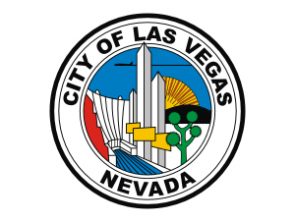
Las Vegas, Nevada
[tm_pb_section admin_label="section"][tm_pb_row admin_label="row"][tm_pb_column type="4_4"][tm_pb_text admin_label="Text"]
Las Vegas, Nevada, USA
Represented by: Tina Quigley, General Manager at Regional Transportation
Commission of Southern Nevada
Southern Nevada is most recognizable for the lights and excitement of its famous Las Vegas Strip. While our remarkable and world-renowned tourism economy is a source of pride for all who live and work here, we are just as proud of the community we have built for those who call the valley home.
Within the next 10 years, our residential population is projected to grow from 2.1 million to 2.7 million, while our visitor population will increase from 43 million to 53 million! While a boon for our economy, this growth creates many challenges, including the need to reduce congestion, improve safety and increase our transportation system’s capacity. Fortunately, our desert oasis is ripe for mobility improvements from more cycling and pedestrian accommodations to expanded transit options. With 175,000 daily transit trips on our 39-route bus-only system, we are still only accommodating approximately 70 percent of the transit demand in our valley.
In addition to traditional solutions like grade-separated pedestrian crossings, high capacity transit services and complete streets treatments, we are working as a community to explore emerging technologies and smart community strategies to address our mobility hurdles. We know collaboration with elected officials, community stakeholders and business leaders is the only way to solve our most critical transportation issues. Together, we are working to create a truly connected community that ensures continued economic prosperity and a high quality of life for generations to come.
[/tm_pb_text][/tm_pb_column][/tm_pb_row][tm_pb_row admin_label="Row"][tm_pb_column type="1_3"][tm_pb_image admin_label="Image" src="http://www.smartcity-dialogues.com/wp-content/uploads/2017/09/Bike-Share-Stations-edit_sm-1.jpg" show_in_lightbox="off" url_new_window="off" use_overlay="off" animation="left" sticky="off" align="left" force_fullwidth="off" always_center_on_mobile="on" use_border_color="off" border_color="#ffffff" border_style="solid" /][/tm_pb_column][tm_pb_column type="1_3"][tm_pb_image admin_label="Image" src="http://www.smartcity-dialogues.com/wp-content/uploads/2017/09/DSC_0101_edit.jpg" show_in_lightbox="on" url_new_window="off" use_overlay="off" animation="left" sticky="off" align="left" force_fullwidth="off" always_center_on_mobile="on" use_border_color="off" border_color="#ffffff" border_style="solid"] [/tm_pb_image][/tm_pb_column][tm_pb_column type="1_3"][tm_pb_image admin_label="Image" src="http://www.smartcity-dialogues.com/wp-content/uploads/2017/09/Strip-Beauty-Shots-35.jpg" show_in_lightbox="on" url_new_window="off" use_overlay="off" animation="left" sticky="off" align="left" force_fullwidth="off" always_center_on_mobile="on" use_border_color="off" border_color="#ffffff" border_style="solid"] [/tm_pb_image][/tm_pb_column][/tm_pb_row][tm_pb_row admin_label="Row"][tm_pb_column type="1_3"][tm_pb_image admin_label="Image" src="http://www.smartcity-dialogues.com/wp-content/uploads/2017/09/SDX-on-Fremont-Street.jpg" show_in_lightbox="on" url_new_window="off" use_overlay="off" animation="left" sticky="off" align="left" force_fullwidth="off" always_center_on_mobile="on" use_border_color="off" border_color="#ffffff" border_style="solid"] [/tm_pb_image][/tm_pb_column][tm_pb_column type="1_3"][tm_pb_image admin_label="Image" src="http://www.smartcity-dialogues.com/wp-content/uploads/2017/09/rtctech-3.jpg" show_in_lightbox="on" url_new_window="off" use_overlay="off" animation="left" sticky="off" align="left" force_fullwidth="off" always_center_on_mobile="on" use_border_color="off" border_color="#ffffff" border_style="solid"] [/tm_pb_image][/tm_pb_column][tm_pb_column type="1_3"][tm_pb_image admin_label="Image" src="http://www.smartcity-dialogues.com/wp-content/uploads/2017/09/6.21.12-Boulder-Highway-Marks-and-FAST-060.5.jpg" show_in_lightbox="on" url_new_window="off" use_overlay="off" animation="left" sticky="off" align="left" force_fullwidth="off" always_center_on_mobile="on" use_border_color="off" border_color="#ffffff" border_style="solid"] [/tm_pb_image][/tm_pb_column][/tm_pb_row][/tm_pb_section]
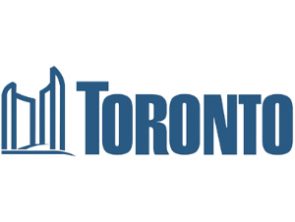
Toronto, Canada
[tm_pb_section admin_label="section"][tm_pb_row admin_label="row"][tm_pb_column type="4_4"][tm_pb_text admin_label="Text" text_orientation="left" use_border_color="off" border_color="#ffffff" border_style="solid"]
Toronto, Canada
represented by Dewan Masud Karim, P. Eng., PTOE, M.A.Sc., Senior Transportation Planner
Urban planning, infrastructure design, and mobility policy are up against a tough system-level challenge: the rapid adaptation of shared mobility. The new mobility is destabilizing the current auto-oriented transportation paradigm, and gradually moving towards a new mobility ecosystem. In order to capture the potential and create shared infrastructure, an innovative mobility planning model based on a scientific approach was developed to identify context-sensitive area solutions and the scaling of the proposed ecosystem for short-and long-term horizons.
The approach first lays out an overall path of transformation to a future ecosystem that maximizes the social, environmental and economic well-being of users. The development of basic principles including limiting boundaries or constraints and interdependency between basic city building elements has been analyzed through maximization of social, environment and economic benefits. The second stage establishes the link between the policy variables of land-use and mobility options while formulating the multimodal demand forecasting and infra-structure needs assessment process. Finally, the demand and supply scale of shared mobility is developed with innovative policy and implementation strategies that minimize or eliminate negative impacts on quality of life.
In addition to new planning approach that integrated emerging and future mobility system into master planning process, the project introduced two new mobility system concept to address first-and-last and easily accessible multimodal locations for short trip needs in urban areas: 1) Ecomobility Points – a multimodal one-stop service points for all users by redesigning public parking, transit service locations and semi public/private locations, and 2) EcoMobility Placemaking – creating a new form of public space from unused pavement spaces given to vehicles while enhancing green space, new space for shared and emerging mobility modes on streets or private/public locations, proper trip end facilities for shared autonomous vehicles and incorporating water infrastructures. Roughly seventy “EcoMobility places” created a soccer field size new public space in Toronto. Identification, reallocation and redesigning the place is not widely recognized and practiced to urban planners and designers prior to the project.
Project Lead and Concept Creation: Dewan Masud Karim, P. Eng., PTOE, M.A.Sc., Senior Transportation Planner
Organization: Transportation Planning North District Team, City Planning, City of Toronto.
Primary Contact Information: 5100 Yonge Street, Toronto, Ontario, Canada, M2N 5V7, Cell: +1-416-823-8448; Office Tel: 416-395-7076; email: dkarim@toronto.ca or dewankarim@rogers.com
[/tm_pb_text][/tm_pb_column][/tm_pb_row][tm_pb_row admin_label="Row"][tm_pb_column type="4_4"][tm_pb_image admin_label="Image" src="http://www.smartcity-dialogues.com/wp-content/uploads/2017/09/cid__fe7fafc3-3f4d-cfac-54a8-ce22a30b2967@yahoo.png" show_in_lightbox="on" url_new_window="off" use_overlay="off" animation="left" sticky="off" align="left" force_fullwidth="off" always_center_on_mobile="on" use_border_color="off" border_color="#ffffff" border_style="solid" /][/tm_pb_column][/tm_pb_row][/tm_pb_section]
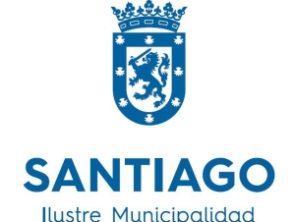
Santiago de Chile
[tm_pb_section admin_label="section"][tm_pb_row admin_label="row"][tm_pb_column type="4_4"][tm_pb_text admin_label="Text" text_orientation="justified" use_border_color="off" border_color="#ffffff" border_style="solid"]
Santiago de Chile, Chile
represented by: Miguel Olivares, Urban Mobility Coordinator of the City of Santiago
In the heart of the capital of Chile, the area of the Municipality of Santiago receives about 2.5 million people daily, which has a direct impact on urban mobility and traffic management. For this reason, for the last 4 years, the Municipality has incorporated into its management the development of a comprehensive mobility plan to improve and optimize the experience of people moving around the commune, as well as optimizing the logistics production processes for the abundant commerce in the area.
It began by giving priority to more sustainable modes of transport, such as walking, cycling and public transport at the expense of private motor vehicles. The main mobility projects consisted of eliminating vehicle lanes, parking lots or even closing sections of streets to give new spaces to pedestrians, cyclists and users of public transport, either by widening sidewalks, building new bike lanes or pedestrian sections to promote pedestrian access . In addition, the Ministry of Transport and the Municipality of Santiago agreed to extend the hours of exclusivity for public transportation in some streets and use cameras for supervision and subsequently fine private vehicles using public transport rails.
The Plan aims to improve the quality of life of neighbors and visitors, as well as increase road safety. In this way, Municipality of Santiago creates more green areas, increase routes for cyclists, allows the existence of areas of slow traffic and improves sidewalks.
The Integral Mobility Plan is the result of a joint search by authorities and citizens for a public policy that will guide the road towards sustainable urban development, so as to provide future generations with a cleaner and more equitable city with standards and international practices.
[/tm_pb_text][/tm_pb_column][/tm_pb_row][tm_pb_row admin_label="Row"][tm_pb_column type="1_3"][tm_pb_image admin_label="Image" src="http://www.smartcity-dialogues.com/wp-content/uploads/2017/08/Before-After-urban-corridor-Santiago3.jpg" show_in_lightbox="on" url_new_window="off" use_overlay="off" animation="left" sticky="off" align="left" force_fullwidth="off" always_center_on_mobile="on" use_border_color="off" border_color="#ffffff" border_style="solid"] [/tm_pb_image][/tm_pb_column][tm_pb_column type="1_3"][tm_pb_image admin_label="Image" src="http://www.smartcity-dialogues.com/wp-content/uploads/2017/08/antes-despues-compañia.jpg" show_in_lightbox="on" url_new_window="off" use_overlay="off" animation="left" sticky="off" align="left" force_fullwidth="off" always_center_on_mobile="on" use_border_color="off" border_color="#ffffff" border_style="solid"] [/tm_pb_image][/tm_pb_column][tm_pb_column type="1_3"][tm_pb_image admin_label="Image" src="http://www.smartcity-dialogues.com/wp-content/uploads/2017/08/san-antonio-006.jpg" show_in_lightbox="on" url_new_window="off" use_overlay="off" animation="left" sticky="off" align="left" force_fullwidth="off" always_center_on_mobile="on" use_border_color="off" border_color="#ffffff" border_style="solid"] [/tm_pb_image][/tm_pb_column][/tm_pb_row][/tm_pb_section]
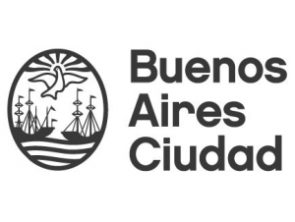
Buenos Aires, Argentina
[tm_pb_section admin_label="section"][tm_pb_row admin_label="row"][tm_pb_column type="4_4"][tm_pb_text admin_label="Text" text_orientation="justified" use_border_color="off" border_color="#ffffff" border_style="solid"]
Buenos Aires, Argentina
Represented by: Mr.Santiago Granda, ProjectManager at the Ministry of Moderization, Innovation and Technology of the City of Buenos Aires
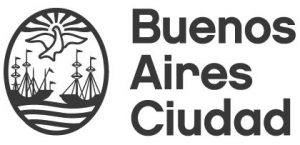 Buenos Aires is an enjoyable city; a place that guarantees the integration of the most vulnerable population and encourages creativity and innovation, so that we can all develop our potential. A connected city, that promotes public transportation, sustainable, predictable and with good quality; that prioritizes pedestrians and cyclists. This is a paradigm change: from transportation to mobility. We design a city for the people, with human scale, where streets are a true meeting point. Our main objective is to improve the quality of transportation because this is a mobility option used by the vast majority. It is the most democratic, inclusive and sustainable way, and we want more people to choose it every day.
Buenos Aires is an enjoyable city; a place that guarantees the integration of the most vulnerable population and encourages creativity and innovation, so that we can all develop our potential. A connected city, that promotes public transportation, sustainable, predictable and with good quality; that prioritizes pedestrians and cyclists. This is a paradigm change: from transportation to mobility. We design a city for the people, with human scale, where streets are a true meeting point. Our main objective is to improve the quality of transportation because this is a mobility option used by the vast majority. It is the most democratic, inclusive and sustainable way, and we want more people to choose it every day.
Demographic and transportation context
Buenos Aires, a city with 2.8 million inhabitants, has a metropolitan area with more than 12 million people and has a very developed public transportation network, with 850 km of railways, 60 km of subway and 18,000 buses operating on over 200 different routes 24 hours a day. Ensuring good public transportation is essential in a City were 8 million trips are made every day and to which almost 3 million people commute on a daily basis, where services have to be provided for almost twice the people living in it. Over the past 6 years, the City began developing a BRT (Bus Rapid Transit) network to improve intermodality and transportation efficiency. Although it had one of the first subway networks in the world, inaugurated in 1913, during many years the government focused its attention on improving infrastructure such as highways linking the city to its suburbs. This vision, which has now changed into one centered in public transportation and healthy mobility ways, led to the current numbers, which show 45% of people entering the City in their daily commute do it by car. However, over 83.5% of trips made within the city are done by public transportation, which shows that there is a high contrast between the quality of mobility between the City and the rest of the Metropolitan Area. This type of contrast is essential in understanding most of the challenges faced by the City Government when planning new solutions to improve transportation quality in Buenos Aires, as not only is there an important difference between the services provided at the outskirts and those within the City, but there are also opposite social realities coexisting within the City itself. This is why we believe it is so important to ensure transportation as an important tool to improve connectivity but also in reducing social inequality, not only by creating bridges between different neighborhoods, but also by improving the quality of public space and creating a safer environment for economic and social growth.
Additional Information
- Every day, more than 8 million people move within the city, 83.5% of which do it by public transportation (57% by bus, 18% by subway, 1% by train, 4% by taxi y 3,5 by bicycle).
- 137 bus lines circulate in the City of Buenos Aires. Only 25 of them begin and finish their routes within the City boundaries, most of them connect with the Metropolitan Area.
- The Buenos Aires BRT Network is 62.5 km long and has 8 functioning corridors, 91 bus lines which benefit over 1.4 million users and a 50% reduction of travel time.
- The bus, with a 57.5% of the total amount of public transportation users, it is the most used transportation mean within the City. With the BRT Network growth, the citizens’ quality of life will continue to improve by ensuring a safer, more comfortable and faster travelling.
- The Buenos Aires Metropolitan Area has the biggest railway network in Latin America, with 850km. The “RER” project is set to improve quality of service, raise frequency and connect all lines at the City center.
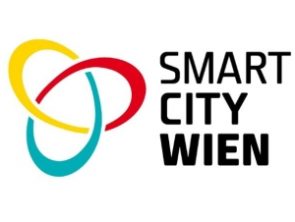
Vienna, Austria
[tm_pb_section admin_label="Section" fullwidth="off" specialty="off" transparent_background="on" allow_player_pause="off" inner_shadow="off" parallax="off" parallax_method="off" custom_padding="||2em|" padding_mobile="on" make_fullwidth="off" use_custom_width="off" width_unit="on" make_equal="off" use_custom_gutter="off"][tm_pb_row admin_label="Row"][tm_pb_column type="4_4"][tm_pb_text admin_label="Text" text_orientation="justified" use_border_color="off" border_color="#ffffff" border_style="solid" custom_margin="||1em|"]
Vienna, Austria
represented by Mr. Dominic Weiss (Head of TINA Vienna GmbH - Vienna Smart City Agency)
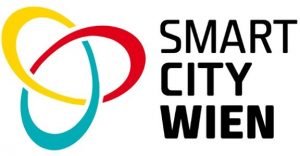 The Vienna Urban Mobility Plan reflects the consistent implementation of a vision of the city enshrined in the Urban Development Plan STEP 2025: mobility in Vienna should be fair, healthy, compact, eco-friendly, robust and efficient. “Together on the move” is the buzzword. In the years to come, Vienna transport policy will be uncompromisingly geared to fostering eco-mobility. Expressed in modal split indicators, the target of STEP 2025 is “80:20”, which means that the citizens of Vienna are to use public transport, cycle or walk to cover 80% of the trips they need to make, whilst the share of car transport should decrease from the present 28% to 20%. Walking and cycling are modes of active mobility, which means that they are conducive to health. Eco-mobility is considered an integrated system in this concept - with optimized interfaces between modes of transport and additional services of city-compatible mobility (e.g. mobility cards, bike sharing and car sharing systems).
The Vienna Urban Mobility Plan reflects the consistent implementation of a vision of the city enshrined in the Urban Development Plan STEP 2025: mobility in Vienna should be fair, healthy, compact, eco-friendly, robust and efficient. “Together on the move” is the buzzword. In the years to come, Vienna transport policy will be uncompromisingly geared to fostering eco-mobility. Expressed in modal split indicators, the target of STEP 2025 is “80:20”, which means that the citizens of Vienna are to use public transport, cycle or walk to cover 80% of the trips they need to make, whilst the share of car transport should decrease from the present 28% to 20%. Walking and cycling are modes of active mobility, which means that they are conducive to health. Eco-mobility is considered an integrated system in this concept - with optimized interfaces between modes of transport and additional services of city-compatible mobility (e.g. mobility cards, bike sharing and car sharing systems).
Wherever additional high-capacity roads are needed in new neighborhoods of the city, these will be planned in a city-compatible way – offering sufficient space to pedestrians and cyclists as well as public transport, and attractive design which invites people to linger. The aim is to develop and use urban infrastructure as a resource in the most efficient way possible. “
Enabling mobility without car ownership” is a central transport-policy concern. The level of motorization of Vienna’s population, i.e. the number of motor vehicles per inhabitant, has been decreasing to 381 passenger cars per 1,000 inhabitants in the past ten years – which indicates that the principle of transport modes combined flexibly according to people’s needs and circumstances is already working well as an appealing and crisisproof (hence robust) alternative. This requires compact urban development and the continued expansion of the city’s highly efficient public transport infrastructure so it fulfils the needs of a growing metropolis. Improvements in the suburban railway and underground networks will remain the mainstay but at the same time, areas in between also need to be provided with tangential tram 4 and bus lines to create a dense public transport network with good connections within the city and between the city and the surrounding region.
Close coordination and cooperation in matters of transport and spatial planning within the entire Eastern Region is crucial for the success of Vienna’s transport policy. This is why for the first time ever, the Vienna Urban Mobility Plan includes a regional mobility plan prepared and supported by the three provinces Burgenland, Vienna and Lower Austria; it forms the basis of all local and regional measures in the mobility sector and thus fills the idea “Together on the move” with life. The Vienna Urban Mobility Plan was prepared by means of a far-reaching discussion process bringing together many institutions and representatives of organizations. The input generated by a Citizens’ Council was likewise incorporated. The Vienna Urban Mobility Plan was adopted by the City Council as part of the Urban Development Plan STEP 2025 in December 2014. Tying in with STEP 2025 the Vienna Urban Mobility Plan provides detailed pointers for sustainable mobility in Vienna. Goals were defined and 50 packages of measures were devised to contribute to reaching the goals.
[/tm_pb_text][/tm_pb_column][/tm_pb_row][tm_pb_row admin_label="Row"][tm_pb_column type="1_3"][tm_pb_image admin_label="Image" src="http://www.smartcity-dialogues.com/wp-content/uploads/2017/08/Vienna-01.jpg" show_in_lightbox="on" url_new_window="off" use_overlay="off" animation="left" sticky="off" align="left" force_fullwidth="off" always_center_on_mobile="on" use_border_color="off" border_color="#ffffff" border_style="solid"] [/tm_pb_image][/tm_pb_column][tm_pb_column type="1_3"][tm_pb_image admin_label="Image" src="http://www.smartcity-dialogues.com/wp-content/uploads/2017/08/Vienna-02.jpg" show_in_lightbox="on" url_new_window="off" use_overlay="off" animation="left" sticky="off" align="left" force_fullwidth="off" always_center_on_mobile="on" use_border_color="off" border_color="#ffffff" border_style="solid"] [/tm_pb_image][/tm_pb_column][tm_pb_column type="1_3"][tm_pb_image admin_label="Image" src="http://www.smartcity-dialogues.com/wp-content/uploads/2017/08/Vienna-03.jpg" show_in_lightbox="on" url_new_window="off" use_overlay="off" animation="left" sticky="off" align="left" force_fullwidth="off" always_center_on_mobile="on" use_border_color="off" border_color="#ffffff" border_style="solid"] [/tm_pb_image][/tm_pb_column][/tm_pb_row][/tm_pb_section]
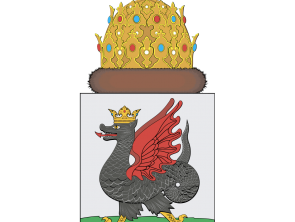
Kazan, Russia
[tm_pb_section admin_label="section"][tm_pb_row admin_label="row"][tm_pb_column type="4_4"][tm_pb_text admin_label="Text" text_orientation="left" use_border_color="off" border_color="#ffffff" border_style="solid"]
Kazan, Russia
Represented by: Rifat Asfanovich Khannanov, Department of Information Technologies and Communications, Department of the Executive Committee of Kazan
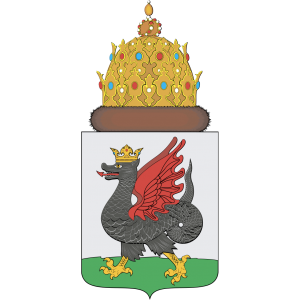 Kazan is the capital and largest city of the Republic of Tatarstan, Russia. With a population of 1,216,965, it is the eighth most populous city in Russia. Kazan lies at the confluence of the Volga and Kazanka Rivers in European Russia. The Kazan Kremlin is a World Heritage Site.
Kazan is the capital and largest city of the Republic of Tatarstan, Russia. With a population of 1,216,965, it is the eighth most populous city in Russia. Kazan lies at the confluence of the Volga and Kazanka Rivers in European Russia. The Kazan Kremlin is a World Heritage Site.
In April 2009, the Russian Patent Office granted Kazan the right to brand itself as the "Third Capital" of Russia. In 2009 it was chosen as the "Sports capital of Russia" and it still is referred to as such. The city hosted the 2013 Summer Universiade, 2014 World Fencing Championships, the 2015 World Aquatics Championships, and is one of the host cities for the 2017 FIFA Confederations Cup and the 2018 FIFA World Cup.
In 2015, Kazan was visited by 2.1 million tourists, which is a 20% increase in comparison with 2014. The Kazan Kremlin was visited by 1.5 million tourists in 2015 and hotel and entertainment complex with aquapark called "Kazan Riviera" was visited by 1 million tourists.
A Smart City for the 22nd Century
Kazan Smart City is a groundbreaking urban development project designed to spur the growth of investment into high technology, medicine, education, and tourism. The project is being developed using the latest advancements in urban planning and engineering.
Kazan Smart City will transform the Republic of Tatarstan’s capital of Kazan into a full-fledged international business hub with ideal conditions for working and living.
A greenfield development project, Kazan Smart City is the first example of holistic urban planning according to smart city principles in all of Russia.
[/tm_pb_text][/tm_pb_column][/tm_pb_row][/tm_pb_section]
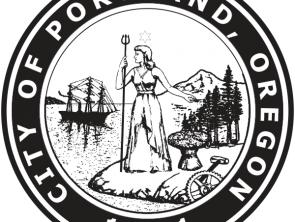
Portland, United States of America
[tm_pb_section admin_label="section"][tm_pb_row admin_label="row"][tm_pb_column type="4_4"][tm_pb_text admin_label="Text" text_orientation="justified" use_border_color="off" border_color="#ffffff" border_style="solid"]
Portland, United States of America
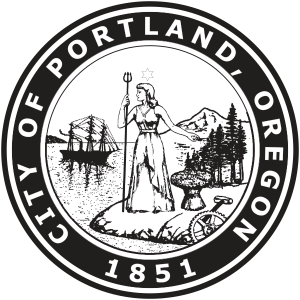
represented by: Mauricio Leclerc, Section Manager, Transportation Planning Division, PBOT City of Portland Bureau of Transportation
Portland is a city known for its multimodal transportation system – and we are at a pivot point. Our economy is growing and providing job opportunities for more people. Neighborhoods are revitalizing throughout the city – often because they are walkable, bikeable, and well-served by transit. But that prosperity is not shared by all Portlanders. Rising rents have pushed our most vulnerable residents to neighborhoods farther from the city core, where a disconnected street grid results in traffic congestion and makes it difficult to provide good transit service. Low-income residents and people with disabilities struggle with longer travel times, dangerous conditions for walking or using mobility devices, and less frequent transit service. In east Portland especially, transportation inequities threaten our ability to remain a city for all.
In the face of these pressures, Portland is at a crossroads. A multimodal future is not just desirable – it’s necessary. Limited resources for new roads, a lack of space in which to put them, and an imperative to reduce emissions and address climate change all point to shifting daily trips away from single occupancy vehicles. But this multimodal future must be accessible to every Portlander.
The core issues facing Portland are not unique: we need to improve safety, enhance mobility, address climate change, and create opportunity for all residents. The challenge is to address these issues in a way that ensures equity is at the center of this paradigm shift. Here, that means all Portlanders have access to the city’s best choices – not just the ones that require personal car ownership.
[/tm_pb_text][/tm_pb_column][/tm_pb_row][/tm_pb_section]
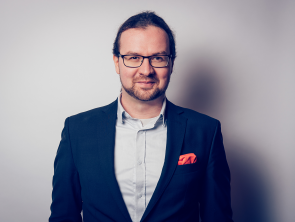
Sven Kindervater
CMO citkar GmbH - Germany
Sven Kindervater
CMO citkar GmbH, Berlin
As a former coach and trainer for foundation and reorientation, with a lot of experience in politics and public relations, he leads the areas of marketing and strategy at citkar, the platform for urban mobility and manufacturer of the Loadster. His focus is the development of strategies for online and offline models in the areas of customer acquisition, product development, communication and financing.
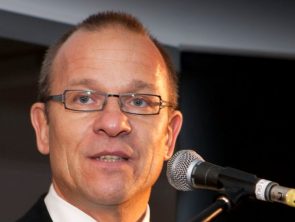
Frank Beckmann
Managing Partner & Co-Founder ParkenPropertyPartner, Consultant Smart Parking & Mobility, Hannover
Frank Beckmann, Germany
Keynote Lecturer
Frank Beckmann was CFO and CEO with Q-Park, a leading carpark operator, from 2005-2015. In January 2015 he became international consultant smart parking & mobility as well advisor for investment companies within the parking sector. In August 2017 he started as managing partner & co founder ParkenPropertyPartner providing all parking expertises as one-stop shop to real estate companies.
Previously he worked for over 12 years as CFO in various companies including three years in Asia. Frank Beckmann regularly publishes newsletters on Linkedin about future developments of parking and mobility. He is member of the advisory board of the Medici Institute in India.

Santiago Granda
Smart City Projects Manager, Buenos Aires
Santiago Tomás Granda
City representative
Santiago Tomás Granda is an Argentinian Systems Engineer and current manager of Smart city projects. In his professional career, Santiago has worked for multinationals companies in technical areas before entering in the public management two years ago.
Currently he works in the ministry of modernisation offering technological solutions to other areas of Buenos Aires’ government such as ministry of transportation, secretary of citizens attention and ministry of education.
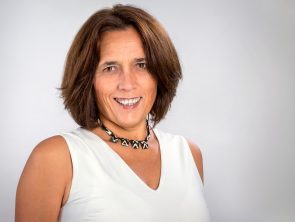
Alejandra Labarca
Founder of SOMOS New City
Alejandra Labarca
UMD Co-host & Smart City Expert
Economist, MBA Universidad Adolfo Ibáñez, Founder of SOMOS NEW CITY. Ex Director of the department Future Cities at Fraunhofer Chile Research. Project leader and coordinator in the field of Smart City since 2012, e.g. launch of Smart Grid (intelligent electric network) by Chilectra in Huechuraba (2012-2013), development of two central offices for Smart Building (intelligent edification), and Smart Santiago (2014-2015). Certification: Theory and Tools of the Harvard Negotiation Project – CMI International.
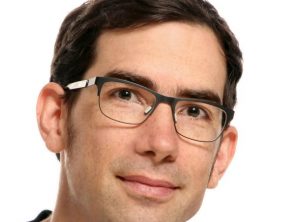
Holger Dieterich
Chairman SOZIALHELDEN e.V.
Holger Dieterich, Germany
Keynote Lecturer
Holger is the co-founder and product manager of Wheelmap.org, a global map to find and mark wheelchair accessible places. In Berlin he also helps other startups to get on the ground."
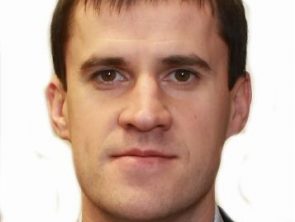
Evgenii Vorobev
Head of traffic management department in the Saint-Petersburg Transport Infrastructure Development Committee, Saint Petersburg
Evgenii Vorobev, Russia
City Representative
Evgenii Vorobev graduated with excellent marks from the Saint-Petersburg State Architectural-Constructional University with a specialization in “Traffic management” and started his career in the State establishment “Saint-Petersburg traffic management direction”. Since 2008 Mr. Vorobev has been working in the Saint-Petersburg Transport Infrastructure Development Committee and in 2013 he has become a head of traffic management department in the Committee.
The main responsibilities of the Committee are:
- Realization of the state policy in the field of traffic management in Saint-Petersburg,
- Control and coordination of the Saint-Petersburg State establishment “Saint-Petersburg traffic management direction”,
Traffic management within Saint-Petersburg urban infrastructure; mobility schemes’ development, dedicated to the traffic safety, enlargement of the road capacities and environmental improvement in Saint-Petersburg, using the tools of reconstruction, modernization, traffic objects’ renovation, including technical units for traffic and logistics.
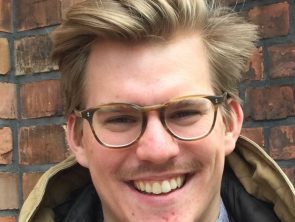
Fabien Sauthier
Head of Business Development at MotionTag
Fabien Sauthier, Germany
Keynote Lecturer
Fabien has been a key team member since MotionTag’s very beginning. Motivated by MotionTag’s vision of improving commuters’ day-to-day life with new technologies, Fabien brings his analytical skills gained through experience in the banking industry and his Master in Finance at the University of St. Gallen. As a head of business development at MotionTag, a crucial part of his mission is to meet and collaborate with tomorrow’s smart city stakeholders.
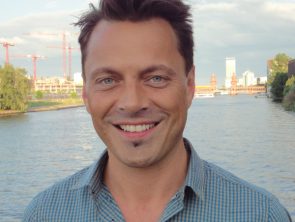
Michael Abraham
Research Fellow at ZTG (Center for Technology and Society), TU Berlin
Michael Abraham, Germany
Panel Sessions Chair
Michael Abraham studied City and Regional Planning at the Technische Universität (TU) Berlin. Supported by a DAAD scholarship, he also spent one year studying architecture, geography and management at Montana State University, USA. Since 2007 he is working as a research fellow at Technische Universität Berlin. Ever since he worked in several European and international projects aiming at promoting sustainable urban mobility. Within this research field he is currently focusing on the process and impact evaluation of transportation measures. His general research interest is oriented towards the testing and assessment of sustainable urban transportation projects and complex strategies as well as towards the identification of transferability criteria of success factors and the corresponding knowledge exchange on an international level. Additionally, he dedicates his activities to general and specific questions related to the conception, implementation, analysis and evaluation of Smart City concepts.
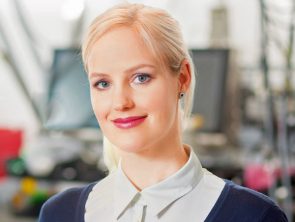
Larissa Zeichhardt
CEO of LAT Funkanlagen-Service GmbH
Larissa Zeichhardt, Germany
Keynote Lecturer
Larissa Zeichhardt is the CEO of LAT Funkanlagen-Service GmbH, the video surveillance and network entity of the LAT group. The German SME provides mobility related services, including (cable)construction for railroad tracks and passenger safety systems for public transport. An engineer by degree, with strong media skills and a deep understanding of the digital, Zeichhardt first build a career in packaging before joining the transport sector.
She is a board member of cable construction association (Gütegemeinschaft Leitungstiefbau), Vice President German Women's Railway Association (Allianz pro Schiene), IEEE, Women in Digital and VdU Member and initiated the InnoTrans Ladies Lunch. Her hobbies? Autonomous flying objects (motodrone.org), Augmented reality and her two kids.
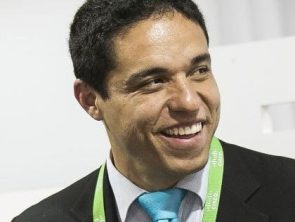
Oscar Chamat
Coordinator of Bike Trails Implantation-2ndPhase- Barcelona City
Oscar Chamat, Spain
City Representative
Oscar Chamat is a bilingual Colombian Civil Engineer and current Coordinator of Bike Trails Implantation-2ndPhase- Barcelona City. In his professional career Oscar has worked in multistakeholder urban projects with social workers, telecommunications engineers, artists and researchers in the field of creativity, among many profiles.
He also has worked on projects of different scales (small municipalities in Colombia, European projects, for the city council of Barcelona or for the Spanish state ...) as well as for companies of sectors that by their activity have an important impact in the territory. At the same time, and more markedly in recent years, Oscar has focused on knowledge transfer and generation of business opportunities between Europe and Latin America in the field of cities, innovation and technology - specifically in the field of smart cities and smart buildings.
As a complement to these projects, he currently is a guest teacher in a specialization in the field of urban innovation and citizen participation. Finally, he also created an online knowledge platform in the field of urbanism for Spanish-speaking cities.
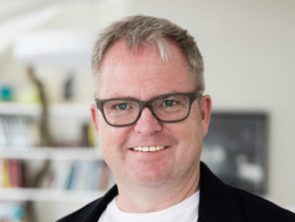
Markus Dold
Founder at eCharge.work GmbH
Markus Dold
Keynote Lecturer
Markus Dold, CEO and founder of eCharge.work GmbH, wrote his first piece of code as student for his high school, giving him an exemption from the years computing lectures.
From there the stage was set and by the early 80s he was developing varying software tools such as Starbase and CSM database systems. These efforts turned into Star Division GmbH, which today is owned by Sun Inc.
In 1991 he founded SOFA, a co-orporation for software-architecture, together with university colleagues. SOFA developed, among dozens of other software solutions, the first computer language for hotel bookings. This effort would eventually turn into the booking platform Booking.com.
Following the success of SOFA Markus specialized in digital solutions for the hospitality world and wrote newspaper columns about the sector.
In the late 90s he founded Othello Services GmbH, an internet provider for almost 2.000 hotels in Europe. He then developed the e-commerce system wordres.com, from which internet platforms such as romantikhotels.com and cclhotels.com emerged.
Before founding eCharge.work – the community for eMobility – Markus was board member of M-Exchange AG.
Markus is a driven entrepreneur whose innovative IT-solutions always have the user in mind. In 2016 he found his new passion with eMobility and is determined to do his part for a greener planet by pushing forward the growth of eCharging stations worldwide.
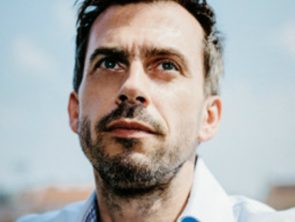
Frank Wernecke
Founder & CEO DroneMasters GmbH, Berlin
Frank Wernecke, Germany
Keynote Lecturer
Frank Wernecke is founder and CEO of DroneMasters GmbH, a Berlin based incubator for drone related startups and automated aerial mobility. With DRONEMASTERS, he has created one of the largest networks consisting of experts from business, science and public sectors, who are actively shaping the development and the use of drones, beyond traditional industrial and sectoral boundaries.
He is invested in several companies, organized the first major drone race in Germany with around 100,000 visitors at CeBIT and invented the Dronathon, a drone marathon for industrial drones. In September 2017 he hosted the first conference on air taxis, manned drones and flying cars in Europe.
His main concern is the acceleration of change. For more than 20 years he has been working at the crossroads of digitization, sustainability and communications. At the age of 26, he founded his first company.
Today, he also runs the business of laf.li, a digital agency and jkcampaign, a Berlin based campaigning company. He is founder of the bettermap foundation, a non-profit foundation to localize Points of Social Impact, member of the research group Ethical-Ecological Rating at the Goethe University Frankfurt am Main, partner of the steering committee of TEDxBerlin and founding partner of the entrepreneur network katapult: NOW.
He lives in Berlin, is married to a lawyer, is the father of three children and likes to run marathons.
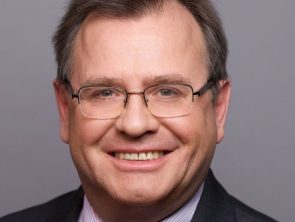
Thomas Meißner
Head of Division, Energy and Mobility, Berlin Partner for Business and Technology
Thomas Meißner
City Representative
Thomas Meißner studied Mechanical Engineering at the Berlin University of Technology (TU Berlin).
His current professional position is Head of Division Energy | Mobility at Berlin Partner for Business and Technology. In this context he is also Cluster Manager for Transport | Mobility | Logistics Berlin-Brandenburg and Deputy Head of Berlin Agency for Electromobility eMO.
Besides his expert tasks, Thomas Meißner is responsible for the coordination of cluster development activities inside Berlin Partner and in close collaboration with the Berlin Senate.
In the past, he was responsible for the management of national and international RTD projects e.g. on road vehicle safety, new vehicle concepts, innovative power-train concepts, railway technology. transport telematics as well as interdisciplinary strategies for future urban areas.
Amongst other fields, Thomas’ expertise covers urban mobility, electromobility, transportation projects, transport telematics, rail systems technology, automotive engineering. He is also experience in the management of EU RTD projects.
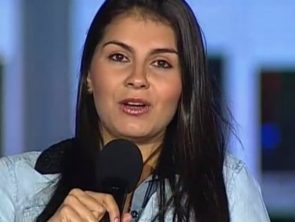
Manuela Garcia Gil
Technical Director, Secretary of Government and Cabinet Management Medellin's town hall
Manuela Garcia Gil
City Representative
Manuela Garcia Gil is a lawyer and political, specialist in commercial law and civil and insurance responsibility, Magister in commercial law at the Pontificia Bolivarian University. In her professional experience of more than 6 years, she has held various positions in the private sector in front of advisory responsibilities to companies in the productive sector.
Currently, she is the technical director of the Ministry of Government and Management of the Cabinet of the Medellin City Hall. In this position she is in charge of advising in the formulation and execution of plans, programs and projects related to the processes that are direct competition of the office of the mayor and of the Secretary of Government in order to contribute to a decision making assertive and aimed at meeting the objectives, policies and strategies.
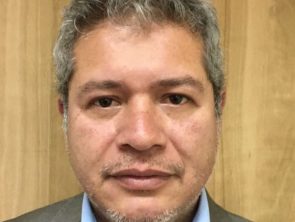
Miguel Olivares
Coordinator of Urban Mobility of the City of Santiago de Chile
Miguel Olivares, Chile
City Representative
Miguel Olivares is an Industrial Civil Engineer and Execution Engineer in Transportation and Traffic. He has a Master's in Traffic, Road Safety and Mobility, with 19 years experience in the public sector. Currently, he is he Urban Mobility Coordinator at the Municipality of Santiago-Chile, where he develops and draws up the Comprehensive Mobility Plan of Santiago district, managing several mobility projects for a more sustainable transportation including walking, bicycles and public transportation. Some of his main achievements are: the construction of a cycle path network in Santiago; the remodeling of roads for public transport corridors (Plan Center); the implementation of a network for public bicycle stations and the design of pedestrian walks. In addition, Mr. Olivares is involved in road education policies for schools, and electromobility projects aimed to increase the fleet of municipal vehicles, as well as taxis and public transportation vehicles. Due to this work, the Municipality of Santiago obtained a national award (Forum Santiago 2041), two international awards (Gobernarte, category Road Safety in Action awarded by the Inter-American Development Bank and Sustainable Transport Award 2017 granted by ITDP); and a citizen recognition (For outstanding contribution to cycling mobility in the Commune of Santiago awarded by the Furious Cyclists Movement), which has meant a national and international reputation.
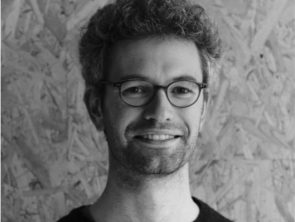
Maximilian Thess
Program Manager Data City Berlin at numa, Berlin
Maximilian Thess, Germany
Keynote Lecturer
Maximilian Thess has been involved in projects around sustainable cities since 2011. A physicist by training he is interested in how data and technology are enabling progress toward more sustainable and resilient urban systems. Currently he is building DataCity at NUMA Berlin – an innovation program that brings together the entrepreneurial drive of startups with the experience and resources of established companies to initiate innovative, data-driven smart city applications in Berlin. Maximilian studied in Berlin, Shanghai, Chennai and Lyon and interned with GIZ in Beijing and Accenture Sustainability Services in Berlin.

Tina Quigley
General Manager, Regional Transport Commission of Southern Nevada
Tina Quigley, USA
Keynote Lecturer
As general manager of the Regional Transportation Commission of Southern Nevada, Tina Quigley knows what it means to think big. In a city of 2.1 million residents and 42 million annual visitors, Quigley is at the forefront of visionary thinking and planning for the future. She recognizes that an enhanced multi-modal and technologically advanced transportation infrastructure will help ensure that Southern Nevada can continue to attract tourists, residents and new business. She has embraced and pushed for sweeping technological advances; she has advocated for future planning; and she has built critical partnerships to well position the region for ongoing and sustained economic vibrancy. With more than 25 years of experience in air and ground transportation management and a licensed pilot herself, Quigley leads the only agency nationwide that is solely responsible for a region’s public transit system, traffic management, roadway design, construction funding and transportation planning.
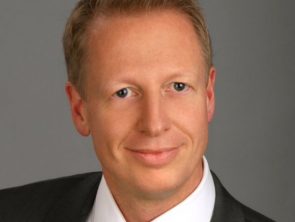
Thomas Schubert
Leitner Ropeways
Thomas Schubert, Austria
Keynote Lecturer
Thomas Schubert is responsible for export markets at LEITNER ropeways facing increasing demand on urban projects. Urban ropeways provide social integration, overcome obstacles and create added value for tourism. References of the Group also produce relief on highly congested cities in an economical and sustainable manner. For cities in developing countries ropeways are an immediate solution provider, for Western municipalities ropeways represent a state of the art transport-solution with incomparably high availability.
Thomas graduated in Civil Engineering and Business Administration (New Venture Creation), has built up and restructured several subsidiaries in the construction industry while living more than 10 years overseas. His focus has been on market placement and sales of heavy equipment for infrastructure-projects, that are in particular subject to economic cycles of the public sector.
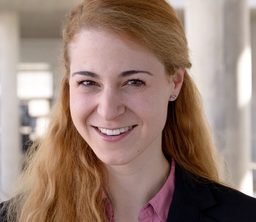
Natalie Pfau-Weller
Fraunhofer IAO, Stuttgart
Dr. Natalie Pfau-Weller
Keynote Lecturer
Natalie Pfau-Weller is a research associate at the Fraunhofer Institute for Industrial Engineering and manages the innovation network Morgenstadt: city insights. 11 different Fraunhofer institutes, 15 international and national cities with different population number as well as 24 companies covering various sectors from automobile to certification are in the innovation network »Morgenstadt: City Insights« to shape and implement jointly the future of the sustainable, liveable and adaptable city of tomorrow. Her research focuses on urban governance and sustainable urban development.
Natalie majored in German Studies and Hispanism and holds a PhD in Political Science. Her doctoral thesis is entitled "Do the EU measures contribute to making German cities more sustainable?“. She works with companies as well as with cities, gives lectures, prepares studies and organizes the network meetings of the Morgenstadt Innovation Network in major European cities. Being a councillor in her hometown, she understands the procedures within a German city very well.
Contact:
Dr. Natalie Pfau-Weller
Competence Team Urban Governance Innovation
Fraunhofer IAO
Stuttgart
Phone: +49 711 970 2196
Mobile: +49 176 60994644
natalie.pfau-weller@iao.fraunhofer.de
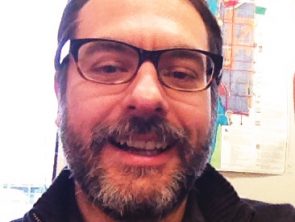
Mauricio Leclerc
Transportation Planning Section Manager, PBOT, Portland
Mauricio Leclerc, USA
City Representative
Mauricio Leclerc has been a transportation planner with the City of Portland, Oregon, USA for over 10 years.
He manages the Area and Project Planning Section of Transportation Planning at the Portland Bureau of Transportation.
Mauricio has worked on multiple efforts over the years, ranging from long range planning for Portland’s Central City and planning transformative multimodal projects for Portland’s vibrant commercial corridors.
He has led planning and environmental studies for major capital projects such as the Sellwood Bridge and Portland-Milwaukie Light Rail and a number of land use, development, transportation, parking and streetscape plans.
Born and raised in Santiago, Chile, Mauricio has a Master of Urban and Regional Planning degree from Portland State University.
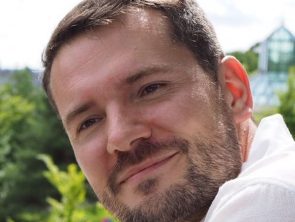
Martin Kracheel
Associate Consultant at LuxMobility, Luxembourg
Dr. Martin Kracheel, Luxembourg
Keynote Lecturer
Martin Kracheel - ICT, Behaviour Change and mobility specialist, - is Associate Consultant at LuxMobility, a privately owned mobility consultancy company specialized in Mobility and Mobility Management, including Human Behaviour, Public Transport, ITS and Traffic Management, Traffic Planning, Traffic Safety, Traffic Modelling, including Traffic Simulation (macro and micro modelling) and Cycling and Policy Studies.
For over 7 years Martin has been involved in planning, design, implementation, operation and evaluation of a wide number of projects like, among the others: Driver profiling and detection systems, Driver safety and distraction studies, Driving simulation studies, Gamified Behavioural Change Approaches supported by ICT, Ride sharing proposals, Workplace interaction studies for Space Systems, Novel ICT based Integration approaches etc. As local project coordinator, Martin has participated in European funded projects and he is currently responsible for the implementation of the “TRACE” in Luxembourg. Martin is author of several scientific papers and book chapters, he is invited speaker in workshops and conferences and besides his activities in the field of mobility also an integration expert for the Luxembourgish Ministry of Welcome and Integration. His expertise and experience in the fields of respectively mobility management, implementation of large project that combine ICT, Serious Gaming, MaaS concepts and user analytics on the basis of mobile application usage data are growing every day.
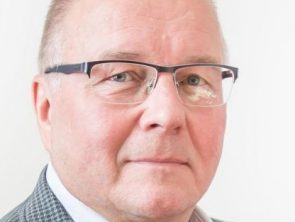
Seppo Haataja
OASC Secretariat Director, Brussels
Seppo Haataja, Finland
Keynote Lecturer
Seppo Haataja became Director of the OASC secretariat in Brussels of the Open & Agile Smart Cities (OASC) initiative in 2015.
With leadership positions in hi-tech, economic development, research collaboration and product development at Nokia, VTT (Technical Research Centre of Finland) and the City of Tampere, Seppo brings 28 years of unique experience and knowledge to the secretariat, joining both a technology and city background with an economic policy, research and business profile. Seppo Haataja was strongly involved in establishing the Wi-Fi standard for wireless networking, which we now all take for granted. He comes from a role of heading the economic development program “Open Tampere” at the City of Tampere.
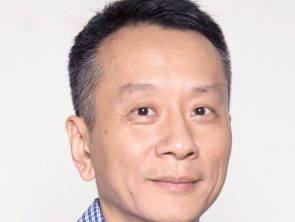
Tony Ho
VP, Global Business Development, Segway Inc.
Tony Ho, China
Keynote Lecturer
Tony is leading Segway’s effort in developing mid to long term growth opportunities, and building strategic partnership with key players in the mobility ecosystem, including municipalities, infrastructure providers, automotive and tourism industries.
Tony was a serial entrepreneur and an advisor to a number of early stage technology companies. He was formerly board member and Chief Operating Officer for Fangjia.com, a home valuation website based on big data and vertical search technology. Prior to that he was VP of Product and Director of Business Development for Myvu/MicroOptical, as well as other roles in technology early stage companies. Tony also worked for Procter & Gamble as a Manager in a variety of functions. Tony attended Harvard Business School where he earned his MBA, the University of Toronto, where he earned a M.Sc. Degree in Mechanical Engineering, and the University of Manitoba where he earned a B.Sc. Degree in Mechanical & Industrial Engineering.
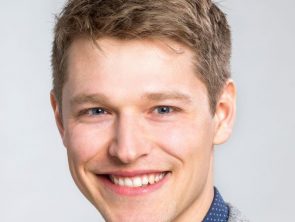
Jonas Schorr
Smart City Expert, Co-Founder of Urban Impact, Berlin - Germany
Jonas Schorr,
Co-Founder Urban Impact, Berlin - Germany
Jonas Schorr holds a MA Global Media & Communications from London School of Economics and Fudan University Shanghai. He works as a research fellow at Technische Universität Berlin, being an active part of Berlin’s emerging Smart City scene. Jonas works in international city cooperation and coordinates the Policy Transfer Platform, an innovative knowledge exchange platform for city experts worldwide. He has worked at the London School of Economics’ urban research centre LSE Cities and the Urban Age Programme. Jonas has studied and worked in a variety of contexts in Europe, Singapore and China.
Recently Jonas founded Urban Impact http://www.urbanimpact.eu

Dewan Masud Karim
Senior Transportation Planner at City of Toronto
Dewan Masud Karim, Canada
City Representative
Dewan spent more than eighteen years of his career in mobility planning and creative engineering projects in both Japan and Canada. Using good engineering skills and holistic view on transportation planning, he focuses on “people-focus” transportation practices, which is shaping our quality-of-life as a genuine indicator of livable society. Based on factual knowledge and evidence, his transportation professional practice seek better integration to the needs of sustainable mobility users, innovative mobility modes and new smart technologies, sustainable safety and smart growth objectives. He worked in both private and public sectors. Awarded at MIT Media Lab Disrupting Mobility summit as “best planning system” and ITE Project of Year in 2015, recently he developed a new innovative mobility ecosystem master planning concept combining equitable use of public space, innovative technologies, real-time travel pattern, vision zero safety, and evidence based scientific approach of rebuilding and redesigning city’s mobility systems for people instead of cars. A few cornerstones of his career include converting “motor city” to Bicycle-friendly Oshawa“, pioneering the concept of multi-modal transportation plans and policies, multimodal station planning and redesign strategies, research experience on safe and compact street design, safe neighborhood street layout, and decongestion plan to remove elevated freeway by replacing with high-quality transit and active transportation facilities to improve quality-of-life for urban residents.
Dewan graduated from the University of Tokyo with Master of Applied Science in Transportation Planning and specialized in traffic safety from Ryerson University. He joined North York District's Transportation Planning Section as a senior Transportation Planner at City of Toronto in 2013. Besides his professional work, he shares his experience through public presentations, professional publications and teaching sustainable transportation planning and traffic engineering course.
Contact:
Address: 5100 Yonge Street, Toronto, Ontario, Canada, M2N 5V7,
Cell: +1-416-823-8448;
Office Tel: 416-395-7076;
email: dkarim@toronto.ca or dewankarim@rogers.com
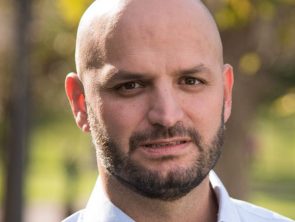
Juanjo Mendez
Secretary of Transportation Buenos Aires
Juanjo Mendez, Argentina
City Representative
Juanjo Mendez is Buenos Aires’ Secretary of Transportation. With previous experience as an entrepreneur, he began working in the public sector in 2010 as chief of staff of Transit and Transportation. As part of the team that implemented the “9 de Julio” BRT and the “Sustainable Mobility Plan”, he received the “Transport Achievement Award 2017” and the “Sustainable Transport Award 2014” . The plan’s main objectives include incentivizing the use of public transportation, promoting healthy mobility ways and reducing road accidents through the development of infrastructure, technology and education. In representation of the City, Juanjo is a director at the Metropolitan Transportation Agency. It’s main mission is developing public policies with the national and provincial governments in order to enhance the mobility in the Buenos Aires Metropolitan Area.
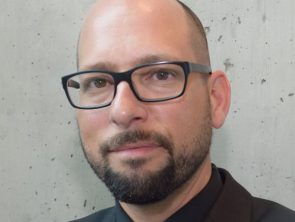
Phillip Schmitz
Head of Technical Management and Head of Innovation Management at Volkswagen Immobilien
Phillip Schmitz, Germany
Keynote Lecturer
Phillip Schmitz studied architecture at the Technical University Braunschweig and with Prof. Jan Gehl at the Royal Danish Academy of Fine Arts in Kopenhagen, Department Urban Design.
He worked for several architecture offices in Hamburg and Braunschweig with a focus on housing, for Baumschlager-Eberle in Austria and for McKinsey&Company as a consultant.
As office manager Phillip Schmitz worked for Architekten Vahjen+Partner, specialists for retail property in prime business locations.
Phillip Schmitz is head of technical management and head of innovation management at Volkswagen Immobilien. He is responsible for the errection of 500 new flats on top of the existing 9000 units Volkswagen Immobilien holds in Wolfsburg. With his team he developes the new district „Steimker Gärten“ with more than 1250 flats in Wolfsburg.
As a living lab for smart mobility it becomes an important part of the initiative #WolfsburgDigital, which the city of Wolfsburg and Volkswagen announced in December 2016.
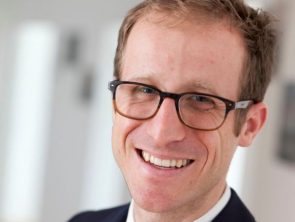
Dominic Weiss
Head, Smart City Vienna Agency
Mag. Dominic Weiss, Austria
City Representative
Dominic Weiss received his Master Degree in Political Science and European Studies from the University of Vienna, Austria. From 2006 on Dominic worked for the City of Vienna, the Vienna Business Agency at the European department in Vienna and Brussels, responsible for EU-funding and strategy. In his function as an EU expert he was involved in numerous transnational programs dealing with IT-solutions, environmental technologies and energy efficient sources.
Since 2013 Dominic Weiss is leading the Smart City Vienna Agency of the City of Vienna which is based at TINA Vienna GmbH, a strategic orientated department owned 100% by the City of Vienna. In this position he is in particular responsible for the coordination and management of the entire Smart City Agenda of the City of Vienna. Previously he was therefore extensively involved in developing the smart city strategy of the city of Vienna. His main area of interest is the research and development of multidisciplinary urban systems, where social inclusion, active stakeholder management, technology and creativity play an important role in shaping our cities of today and tomorrow.
Since 2015 Dominic is as well an authorized Officer of TINA Vienna and further more responsible for the Smart ICT Strategy of the City of Vienna.

Wendy Wallace Husser
Certified Language Coach & Trainer
Wendy Wallace Husser, USA
Moderator
Originally from Denver, Colorado, Wendy Wallace Husser has studied, lived, and worked outside the US for more than half her life. She has a solid business background in Sales and Marketing and brings 20+ years of experience as a freelance language coach and professional trainer to the table.
Wendy works predominantly with leaders and change makers from diverse fields who are looking for “the right words” in order to be successful. She uses her expertise to help clients design and deliver their messages with maximum impact and authenticity.
Wendy is a highly-skilled communicator and public speaker, committed to promoting powerful and constructive dialogue.
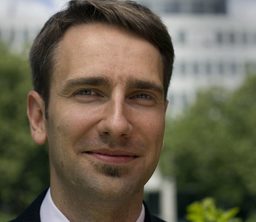
Thomas Günther
Fraunhofer Institute for Open Communication Systems FOKUS
Thomas Günther, Germany
Keynote Lecturer
Thomas Günther, Network and Solutions Engineer, obtained his Diploma in Electrical Engineering at Beuth University of Applied Sciences Berlin. Since then, he is leading the team responsible for the IT infrastructure of NGNI. He has more than 8 years of experience as infrastructure and systems architect specializing in virtualization and cloud computing. Currently, he is focusing on operation and interconnection of cloud infrastructures.
In the past, he operated and deployed several NGN testbeds which allowed telco network operators as well as universities to develop standard-based services and Web applications. At the moment he is working in several European research projects which cover design, federation and operation of multi-site cloud-based facilities to support applications, services and systems for the Future Internet community. Apart from that, he provides general guidelines for the IPv6 transition of network infrastructures, services and applications.
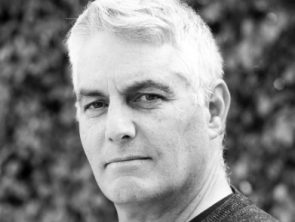
Ariel Sella
CEO CAPSULA, Smart Mobility @TAU, Tel Aviv University
Ariel Sella, Israel
Keynote Lecturer
Ariel Sella is the Managing Director of Capsula, a unique University Institute which promotes innovation in Smart Mobility through grants to researchers and accelerator residencies to entrepreneurs. Capsula has so far dispensed more than 10 research grants and graduated 15 startups. The Summer ‘16 cohort includes startups from Israel and abroad developing autonomous vehicle sensors, automotive cybersecurity, shared economy, machine learning for smart city, freight forwarding exchange, autonomous delivery and city cycling apps.
Prior to Capsula Ariel was an advisor, in the areas of smart energy, smart mobility and entrepreneurship to venture funds, firms, startups and universities. His assignments included Foundation Capital in the area of Electronic Design Automation, defence contractor RAFAEL in the area of microgrids; Indegy in cybersecurity for critical infrastructure; Phinergy in grid energy storage; Meteo-Logic in energy trading; BrightSource in spinout entrepreneurship; Bar Ilan University in research innovation. As a pro bono mentor to early stage entrepreneurs, Ariel worked with companies in a diverse range of domains including solar energy, energy storage, energy retailing, fleet cybersecurity and more.
Before then Ariel and his family lived for nearly a decade in Silicon Valley where he was CEO of venture funded companies in the semiconductor and supply chain domains. In the preceding decade, living in Israel, Ariel co-founded two startups which were subsequently acquired, and was a founding partner of Formula Ventures, an early stage fund managing more than $150 million, with exits such as Radlan and Phonetic Systems to his name.
From the late 1970s to the early 1990s Ariel worked in the semiconductor and Electronic Design Automation fields starting as a chip designer at Intel and concluding as the founder of new division at EDA leader Cadence Design Systems.
Ariel spent his early years in Israel, Ghana, Japan and the Philippines and received a B.A. in Computer Science from the University of California at Berkeley. He is married to Sofia, an architect and Technion lecturer with whom he has three children - Tamar who is pursuing a PhD in ethnomusicology at Harvard, Yehonatan who is pursuing a PhD in mathematics at UCLA and Evyatar, a musically oriented high school student in Israel.
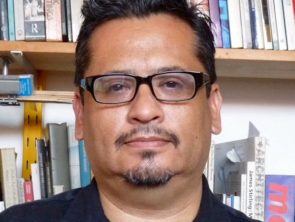
Rene Peralta
San Diego State University
Rene Peralta, USA
Keynote Lecturer
Rene is a Lecturer in the Art and Design program at San Diego State University. He is co-author, with the anthropologist Fiamma Montezemolo and writer Heriberto Yepez, of the book Here is Tijuana, Black Dog Publishing, London 2006. From 2012-2014 was the Director of the Master of Science in Architecture with emphasis on Landscape + Urbanism at Woodbury University School of Architecture in San Diego, CA.
In 2015, his work on PREVI in Lima, Peru along with his graduate students from Woodbury University was part of the exhibit; Latin America in Construction: Architecture 1955-1980 at the Museum of Modern Art in New York. Currently, he forms part of Hyperloop West one of the 11 U.S. semifinalist teams developing a Hyperloop transportation route from Los Angeles, California to Ensenada, Mexico. Rene is the curator for the San Diego / Tijuana pavilion at the 2017 Seoul Architecture and Urbanism Biennale.
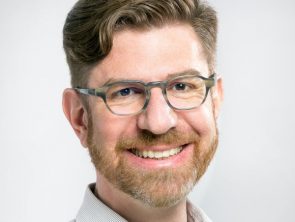
Robert Knight
Moderator, Coach, International Human Resources Management
Robert Knight, USA
Moderator, Discussion Leader
Robert Knight is the founder of Conscious Endeavors, a consultancy specialized in executive and professional career coaching, leadership and organizational development.
A native of Washington State in the United States, Robert Knight has lived, studied and worked in Germany since 1989. In addition to having studied organ performance and sacred music at the State Conservatory of Music in Trossingen, Germany, he holds an MA degree in Languages and Humanities from University of Freiburg, Germany, and a Master of Science Degree in Business Administration from the Graduate School of
Business Administration Zürich (GSBA), Switzerland.
Robert Knight is particularly driven to help experienced professionals, business leaders, teams and other individuals to discover and development their full human potential as they make a positive impact in the world.
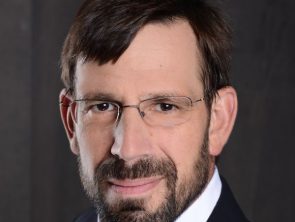
Gunther Neidlein
CEO, FIBERIN - Freies Institut für Bedürfniserforschung und Internetanwendung
Gunther Neidlein, Germany
Keynote Lecturer
Gunther Neidlein is passionate about sustainable development in urban and rural regions. As CEO of FIBERIN (Freies Institut für Bedürfniserforschung und Internetanwendung), he's developing holistic concepts and projects out of his visions. These visions are based on his broad industry experience in energy and mobility sectors at the Bosch Group, the Rösch Consult and current trends.
According to the UN Sustainable Development Goals (SDGs), the "Energy Transition" is driving the current trend in "Mobility Transition" with the goal of significant decarbonization and improvement of general quality of life. For that purpose, laws are adopted or currently in adoption worldwide, to get the Resilient Smart City movement (RSCs) developing in a timely fashion.
Based on this, Mr. Neidlein and FIBERIN developed and operated technical and business prototypes for BOSS&W (Business Opportunities with Solar Systems & Wind) in cooperation with educational institutions and social clubs for the African market. A motivator here was the increasing number of refugees, especially since 2015. Additionally, FIBERIN is developing concepts and projects for innovative mobility & energy solutions for international urban applications in Prishtina, Lagos and Berlin.
Mr. Neidlein and FIBERIN is official representative of the SHMAAP - Association to Support Vocational Education and Training of the Republic Kosova.
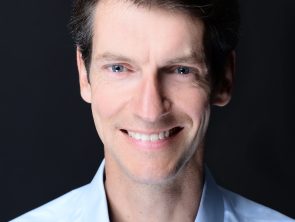
Christian Hudson
International expert on policy processes for low-carbon economic growth and systems change
Christian Hudson, USA
Moderator
Christian Hudson is a consultant on policy and innovation for sustainability at Low Carbon Prosperity. He has a MA in law from Cambridge University and an economics MSc from University College London and long experience inside UN, EU and national governments. His particular interests are in ways to improve the use of analysis and science in decision making, and policy making for large-scale innovation. He is currently based in Berlin, where his clients have included the European Climate Foundation, and McKinsey spin-off SystemiQ."
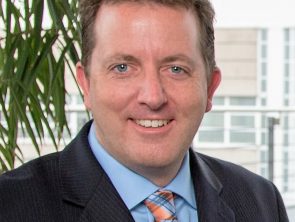
Chris Barker
Vice President of New Mobility at Keolis
Chris Barker, USA
Keynote Lecturer
Chris Barker is Vice President of New Mobility at Keolis helping to introduce new transportation options to cities and communities across North America. Keolis is a global transportation company that provides heavy rail, light-rail, bus, autonomous shuttles, car share, bike share, and sky tram service to 26 countries moving 3 billion people a year.
Chris is 20-year veteran of the transportation and technology industry. He founded transportation technology firm CBC where he has worked with transportation and technology companies, cities and governments around the world to advocate the role of technology in advancing new forms of mobility. Last year, Chris was an advisor and judge on the USDOT Smart City Challenge project and has continued to advance smart city/transportation development projects across the globe. His CBC team has also developed and deployed self-driving car simulators for State DOTs/DMVs, universities, museums and other public facilities.
Prior to running his own company, Chris has held senior business development, communications and marketing roles for multiple Fortune 50 companies. He served as the Global Director of Communications for Honeywell Aerospace, Head of Public Sector Communications and Marketing at Cisco and Senior Executive Communications Manager for the Office of the President at Boeing. He’s also held VP/SVP of business development and marketing for Text 100 Communications and Waggener Edstrom Worldwide.
Chris is a national Board Member for the Association for Commuter Transportation. He’s also been a Connected Car/Future of Mobility keynote/panel speaker at CES (Las Vegas), SXSW (Austin), RSA (San Francisco), CE Week (New York), A-Bace (Shanghai) and IAA (Frankfurt).
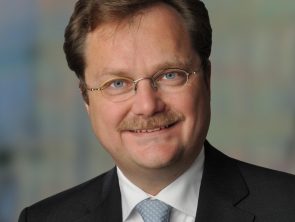
Olaf-Gerd Gemein
Business Architect, Serial Entrepreneur, Member of the Board of FIWARE Foundation, Co-Founder of Smart Cities Lab
Olaf-Gerd Gemein, Germany
Keynote Lecturer
Olaf-Gerd Gemein is a passionate Serial Entrepreneur and Strategic Leader, having demonstrated an acumen for building businesses from the ground up while consistently injecting  new ideas and leveraging technology to keep driving success. With 30+ years of experience within diverse markets in Europe, Asia, North South America and Canada, Olaf-Gerd Gemein has successfully supported 100+ projects from 13 countries in the ICT sector. Currently he is co-founding the Smart Cities Living Lab initiative globally.
new ideas and leveraging technology to keep driving success. With 30+ years of experience within diverse markets in Europe, Asia, North South America and Canada, Olaf-Gerd Gemein has successfully supported 100+ projects from 13 countries in the ICT sector. Currently he is co-founding the Smart Cities Living Lab initiative globally.
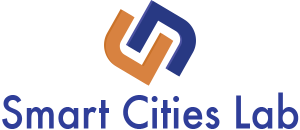 He is a member of the Board of Directors of the FIWARE Foundation and head of Mission Support Domain Committee Smart Cities of the FIWARE Community. Holding a Bachelor's degree, Olaf-Gerd Gemein has extensive experience in StartUp Coaching, Incubation and Acceleration, Business Modeling, Design Thinking, Agile development and Innovation frameworks, Startup - and Innovation Cluster financing, as well as in understanding, supporting and organizing Smart Cities as enabler for wealth and economic prosperity.
He is a member of the Board of Directors of the FIWARE Foundation and head of Mission Support Domain Committee Smart Cities of the FIWARE Community. Holding a Bachelor's degree, Olaf-Gerd Gemein has extensive experience in StartUp Coaching, Incubation and Acceleration, Business Modeling, Design Thinking, Agile development and Innovation frameworks, Startup - and Innovation Cluster financing, as well as in understanding, supporting and organizing Smart Cities as enabler for wealth and economic prosperity.
Contact:
Olaf-Gerd Gemein
Elbchaussee 28, D- 22765 Hamburg, Germany
Holtenauerstrasse 325, D-24106 Kiel, Germany
fiware.in, fi-ppp.eu, fiware.org
www.facebook.com/olafgerd.gemein
www.linkedin.com/pub/olaf-gerd-gemein/3b/6/684
+49 (431) 220 26 47 - office
+49 (176) - 540 50 471 - mobile
oggemein@googlemail.com
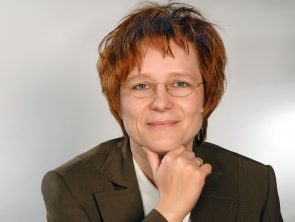
Gabriele Wendorf
Director of the ZTG (Center for Technology and Society), TU Berlin - Germany
Gabriele Wendorf, Germany
Panel Sessions Chair
Gabriele Wendorf is the scientific director for the ZTG (Centre for Technology and Society) at the Technische Universität Berlin (TU Berlin). She was previously a Vice President of TU Berlin and visiting professor at the Chair of Designing, Architecture and Urban Development in Global Relations. Her background is a rich mix of economics, applied science and urban development.
In addition to her long academic career, Wendorf cofounded and served as CEO of the Association for Applied Programming (Gesellschaft für anwendungsorientierte Programmierung GAP mbH)
She studied Industrial Engineering and Management, specializing in Civil Engineering a TU Berlin.

Esteve Almirall
Director of Center for Innovation in Cities (CIC)
Esteve Almirall, Spain
Keynote Lecturer
Esteve Almirall serves as Associate Professor in Esade Business School where his research focuses on Innovation, particularly on Open Innovation and Data Science. His work has been referenced in HBR and he is a frequent speaker in conferences around Innovation, Big Data and Data Science, Smart Cities, Living Labs and Open Data/Gov. His background is a mix of Management Science (PhD,MRes,MBA) and Computer Science /A.I. (MSc, MRes). Esteve is also highly involved in European Projects and EU organizations having coordinated and participated in many EU projects on Innovation and Smart Cities. He is passionate about how we can use IT to redefine governance and reinvent citizenship in the XXI century transforming cities from service providers to ecosystem orchestrators and therefore fostering growth and promoting entrepreneurship.
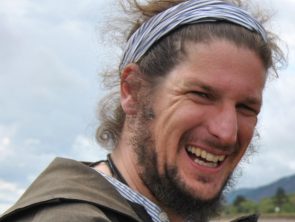
Michael Mischke
PCH Innovations GmbH - Mechanical Engineer, Industrial Sociologist, Engineering Psychologist
Dr. Michael Mischke, Germany
Keynote Lecturer
Dr. Michael Mischke is originally a boy scout and translated these skills and his enthusiasm into studies of Mechanical Engineering, Industrial Sociology and Engineering Psychology. He wrote his PhD in a contract for AUDI AG on handwriting recognition and multimodal interfaces for cars.
After setting up an internal service agency for HMI in the Volkswagen Group Research and altogether 10 years of industrial experience he left the corporate world to become a Berlin based Strategist and Storyteller for Human Machine Interaction, focusing on ecogood economy, digital networks, online collaboration, urbanization and mobility.
As a founding member of the WECHANGE e.G. he supports NGOs and social innovation startups from Berlin and all over eastern Europe with trainings and coaching in digital collaboration, storytelling, and networking. The digital platform WECHANGE.de provides tools for digital networking and collaboration to more than 10.000 volunteers. As a freelance UX Strategy consultant Michael worked for BMW, Volkswagen of America (ERL}, the Institute for Participatory Design in Oldenburg and the sinnwerkstatt Medienagentur GmbH, he holds numerous patents on interaction patterns and has broad experience in Service Design, participatory design processes and leadership development.
Michael joined PCH INNOVATIONS in 2015, leading long term projects and focusing on urbanization, innovation facilitation and strategy development for mayor brands. Michael Mischke is voluntarily engaged in the following groups: Junge Osteuropa Experten, Bund der Pfadfinderinnen und Pfadfinder, German Usability Professionals Association e.V.
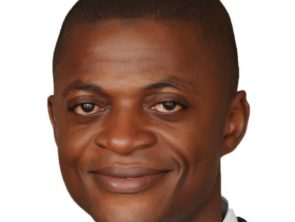
Emmanuel John
Director, Transportation Growth Initiative, Abuja - Nigeria
Emmanuel John, Nigeria
Keynote Lecturer
Emmanuel John holds a Master’s Degree in Transport and Logistics and he is the Director of Strategy of Transportation Growth Initiative (TGI), a non-governmental Organization focused on transport research, human resource development and networking, which membership is composed of private transport companies, government ministries & agencies relating to transportation, research institutes, Universities, Civil Societies and individuals with interest in transportation. Prior to this, he had worked with Government of Nigeria at the Federal Road Safety Corps for 20 years as a transport and road safety expert and was involved in the development of many national road safety initiatives and policies. He is also the Series Director of the TGI’s annual International Transportation Conference which network African transportation experts, decision makers and practitioners. Emmanuel is the Coordinator of Transport Research and Projects of the Africa Union of Transport and Logistics Organization, a continental body composed of transport organizations, academics and other technocrats from 26 Africa countries. 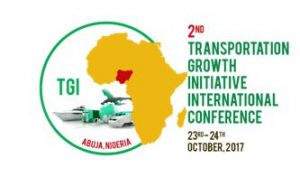 Emmanuel has been involved in the coordination of many sustainable urban mobility initiatives in Nigeria and in Africa including #OpenStreetsAbuja, activities marking the World Bicycle Day, Development of the first draft national Cycling Policy and Strategy, the annual Sustainable Urban Mobility Course for Africa, holding in Abuja, amongst others. He has authored six books among which are “The Future of Urban Mobility in Nigeria: Mitigating the Impact of Population Growth on Urban Mobility” and “Non Motorised Transportation in Developing Countries”. He is a chattered Engineer, regular keynote speaker, Radio/TV commentator, and Corporate Member of the Chattered Institute of Transport and Logistics, UK.
Emmanuel has been involved in the coordination of many sustainable urban mobility initiatives in Nigeria and in Africa including #OpenStreetsAbuja, activities marking the World Bicycle Day, Development of the first draft national Cycling Policy and Strategy, the annual Sustainable Urban Mobility Course for Africa, holding in Abuja, amongst others. He has authored six books among which are “The Future of Urban Mobility in Nigeria: Mitigating the Impact of Population Growth on Urban Mobility” and “Non Motorised Transportation in Developing Countries”. He is a chattered Engineer, regular keynote speaker, Radio/TV commentator, and Corporate Member of the Chattered Institute of Transport and Logistics, UK.
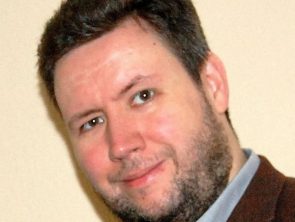
Jan Gympel
Journalist, Author, Urban Historian
Jan Gympel, Germany
Keynote Lecturer, "History of Mobility in Berlin"
Jan Gympel, born in 1966 and grown up in West Berlin started working as a journalist in 1983, first for the alternative Kreuzberg monthly “Südost-Express”, in 1987 as a professional freelancer for daily newspapers like “die tageszeitung (taz)”, “Der Tagesspiegel”, “Frankfurter Allgemeine” and “Die Welt”, magazines like “Zitty” and technical periodicals like “Bauwelt” (about architecture) and “Signal” (about traffic, primarily in Berlin). In 1994 he was awarded the Deutscher Preis für Denkmalschutz (German Award for the conservation of monuments and historic buildings) for an eight part article series on Berlin railway architecture and its conservation, published in “Der Tagesspiegel”. Gympel’s main focus is on traffic and Berlin history, architecture and its conservation, film and television. He is the founder of the project Berlin-Film-Katalog and curates film programmes at Brotfabrikkino and at Zeughauskino. Since 1990 he has published numerous articles in books and about twenty books, some of them about traffic in Berlin. Gympel lives in Berlin.
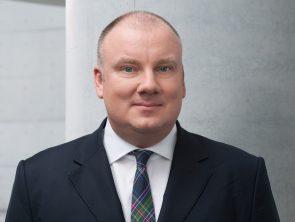
Christian Hochfeld
Director of Agora Verkehrswende
Christian Hochfeld, Germany
Keynote Lecturer
From 1996 to 2004, Dipl.-Ing. Christian Hochfeld worked on environmental and climate protection in traffic as a research assistant at the Oeko-Institut, a research institute for applied ecology. He was a member of the management team of Oeko-Institut from 2004 to 2010. Christian Hochfeld then worked as a programme director for sustainable traffic in China at Deutsche Gesellschaft für Internationale Zusammenarbeit (GIZ) a leading provider of international cooperation services for sustainable development. He has been the Managing Director of Agora Verkehrswende, an initiative of Stiftung Mercator and the European Climate Foundation, since February 2016. Christian Hochfeld has been a member of the International Advisory Committee of the China Association for Electric Vehicles (China EV 100) since 2015.
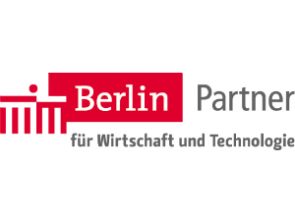
Berlin Partner for Business and Technology
Berlin Partner for Business and Technology
Business and technology support for companies, investors and scientific institutions in Berlin – this is the Berlin Partner für Wirtschaft und Technologie GmbH mission. With customized services and an excellent science and research network, our many experts provide an outstanding range of programs to help companies launch, innovate, expand and secure their economic future in Berlin.
A unique public-private partnership, Berlin Partner for Business and Technology collaborates with the Berlin State Senate and over 270 companies dedicated to promoting their city. Berlin Partner is also responsible for marketing the German capital to the world, for example with the successful “be Berlin” campaign.
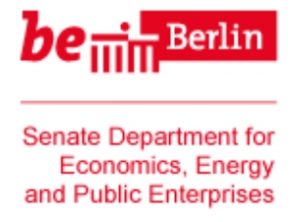
Berlin Senate Department of Economics
Berlin Senate Department of Economics, Energy and Public Enterprises
Modern Berlin has become a global centre of innovation. It is Europe’s startup capital, having topped London in 2015 for the second time. A total of 2,1 billion Euro were invested in local startups. Every 20 hours a new digital company is founded in Berlin. In total, 40,000 new businesses every year. Services and technology have become the driving factors of modern Berlin that was once a world-famous industrial city.
Abundance of ideas and excellence in research draws many entrepreneurs and businesspeople to Berlin. In numbers, there are four public universities, seven schools of applied sciences and 30 private schools with 171,000 students combined. Numerous centres of Germany’s longstanding research institutions are located in the city: twelve Leibniz institutes, Max Planck (6), Fraunhofer (4), Helmholtz (3).
Nobody would have assumed this kind of success given that Berlin, for many years, was among the poorest states of Germany. Today, it has one of the fastest growing economies, with a consecutive GDP growth of 2,2 percent in 2015, far beyond the average growth rate of Germany at 1,7. Every 12 minutes, a new job is created, almost 140,000 jobs over the past four years. Every year, 40,000 people move to Berlin.
The goal of the Senate Department for Economics, Technology and Research is to secure Berlin’s recent leading position and make it a global hub. Ten so called centres of future, local innovation parks for smart industries, are currently being developed. Creating a network for electric vehicles, launching 5G sites for commercial enterprises and expanding 200 Mbit-internet over the entire city are other focal areas to make Berlin a global pacemaker for innovation in the digital age.
http://www.berlin.de/sen/wirtschaft/en/about-us/artikel.458761.en.php

eMO
eMO
eMO is an agency of the State of Berlin that operates under the aegis of Berlin Partner for Business and Technology. eMO’s partners are the State of Brandenburg and companies and institutions active in the fields of business and science. The following belong to eMO’s highest advisory body, the Steering Commitee: The Berlin Senate Department for Economics, Energy and Public Enterprises; for the Environment, Transport and Climate Protection; and for Finances, respectively; as well as the Senate Chancellery and the Brandenburg Ministry for Economic and European Affairs.
The Berlin Agency for Electromobility eMO is the central point of contact for smart mobility in the German capital region. eMO brings together expertise and actors from business, science, politics and administration, and supports the initiation, execution and marketing of regional, national and international innovation projects in the field of smart mobility.
Its activities follow the so-called CASES approach: connected, automated, shared, electric, sustainable. It therefore exploits the opportunities of technological, social and ecological innovation by doing more than simply electrifying vehicle powertrains, thereby making mobility safer, cleaner and more sustainable and helping improve people's quality of life.
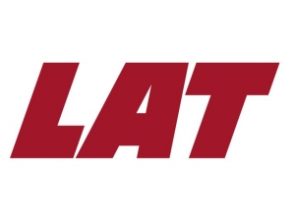
LAT
LAT
LAT is a German, second generation family owned and operated firm for mobility related services, including (cable)construction for railroad tracks and passenger safety systems for public transport. The SME is managed by two sisters, and supplies a broad range of services and products from special civil- to safety engineering for every aspect of trackage, including signal-, construction- and video surveillance systems.
The construction unit LAT Fernmelde-Montagen und Tiefbau GmbH offers quality construction work with a focus on highly complex power cables and communication networks for the public sector.
Areas of focus include:
-construction and reinstatement of railway related systems such as 50 Hz
-control and signaling, including cable and special foundation works
-cable laying, cable troughs and conductor rail systems
The entity is certified to work during normal railway operation, fulfills RAL-GZ 962/2 “Kabelleitungstiefbau” and DIN ISO 9001:2015. The construction teams are pre-qualified by Deutsche Bahn and used to fulfilling complex projects in short time spans. Customers include DB Netz AG, Siemens AG Industry Mobility, Strabag AG, Balfour Beatty Rail, Spitzke AG and Heitkamp.
The video surveillance and network entity LAT Funkanlagen-Service GmbH excels in mobile systems for bus, tram and trains.
Certified service electricians:
- customize, supply and service passenger and fleet connectivity solutions for near field transport, bus and tram manufacturers
- design, deploy and manage passenger WiFi and on-board passenger infotainment systems
- provide the basis for condition-based monitoring
Customers include Deutsche Bahn, BVG – Berliner Verkehrsbetriebe, EVO, MAN, Solaris, Scania and VDL.

LuxMobility
LuxMobility is a young company (founded in 2013) with a solid background. It is an ambitious privately owned organisation based in Luxembourg. The permanent staff of LuxMobility consists of 4 senior consultants that have a vast experience in the field of Mobility, Traffic and Transport as well as in Education and Training in these areas. The basis of the company finds its origin in DTV Consultants, a leading consultancy firm in traffic, transport and education in the Netherlands.
LuxMobility has the mission to become a leading international operating consultancy within the field of Mobility and Sustainable Transport. LuxMobility aims to play a major role in providing solutions for the growing mobility problems in cities worldwide.
LuxMobility operates as a network organisation. The abovementioned core staff of the company is extended whenever necessary with a number of dedicated Associated Consultants. These consultants have their own field of expertise and experience and will be appointed depending on the subject of the project. Working is this manner makes LuxMobility very flexible and suited for many different projects, which is one of its core strengths. In a way, LuxMobility operates as a logical connector between mobility questions and solutions, with the right people for the job.
LuxMobility is producing knowledge, solutions and consultancy for mobility challenges in the urban environment. LuxMobility specializes in the following themes:
- Project management (including financial management) of large international consortia and projects
- Mobility and mobility management, including human behaviour
- Public Transport
- ITS and traffic management
- Traffic planning
- Traffic safety
- Traffic modelling, including traffic simulation (Macro and micro modelling)
- Cycling
- Policy studies

Motion Tag
Motion Tag
We at MotionTag are convinced that a sustainable future for our cities lies in building smarter mobility. Travelling should be smooth, easy, accessible, affordable, efficient and eco-responsible. Our mission is to improve everyday journeys by simplifying the whole transport system within and around cities.
Based on the Mobility-as-a-Service (MaaS) concept, we make use of new technologies to deliver seamless and integrated mobility solutions. Our two complementary products provide you with actionable knowledge in order to deliver the best traveling experience to your passengers. We help you leverage data analytics and real-time passenger information to provide MaaS and demand-driven transportation. We love to make mobility smoother. Let’s make cities smarter, together.

nexus
nexus
The nexus Institute for Cooperation Management and Interdisciplinary Research was founded in 1999 as a spin off from the Center of Technology and Society (CTS) at the Berlin Institute of Technology (Technische Universität Berlin - TUB), Germany. nexus has a long standing expertise in research on mobility, demographic changes, rural areas, civil society, globalization and identity, governance, knowledge and culture of organizations. nexus is involved in research projects of the EU Seventh Framework Programme (FP 7) and is looking for partners.
Products and services of nexus comprise practical and application-oriented research projects (local to international levels, interdisciplinary and transdisciplinary), activating evaluation, cooperation management, qualitative knowledge management and the development, testing and optimization of services and civil society infrastructures.
The nexus research-team facilitates workshops, manages projects and organizes public relations as required by the client. Participation and involvement of citizens is a core competency of nexus.
nexus has bundled its core competencies in participatory processes and methods in its Academy of Participatory Methods (APM). On the website of the academy you can find more information, advice and services on citizens’ exhibitions, planning cells and the salon method.
ATLAS.ti is a strategic partner of the nexus institute. nexus uses ATLAS.ti for the analysis of qualitative data.

NUMA Berlin
NUMA Berlin
NUMA Berlin is a startup hub producing growth and innovation programs for entrepreneurs and corporates. We are part of the global network of NUMA, reaching from Berlin and Paris to Mexico, New York City and beyond. Our aim is to empower mission-driven technology entrepreneurs to solve the global problems of 2030. DataCity is NUMA's signature Smart City program, where we facilitate innovation at the intersection of startups, corporates and city authorities.
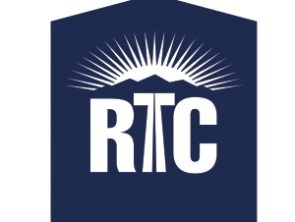
Regional Transportation Commission of Southern Nevada - RTCSN
Regional Transportation Commission of Southern Nevada - RTCSN
The Regional Transportation Commission of Southern Nevada (RTC) is a regional entity that oversees public transportation, traffic management, roadway design and construction funding, transportation planning and regional planning efforts known as Southern Nevada Strong. As the Las Vegas Valley’s population continues to increase daily, so too does traffic congestion and the RTC identifies transportation challenges and explores and implements both short and long-term resolutions while simultaneously promoting sustainability, air quality improvement, enhanced mobility and increased quality of life in the region. On July 3, 2004, RTC became the official administrator of FAST. The Nevada Department of Transportation (NDOT) and the RTC became full-fledged funding partners, contributing to the operations and management of FAST. In spring 2015, the RTC also became the administrator of Southern Nevada Strong, the valley’s first and only regional plan to build complete communities that provide transportation choices, employment opportunities, housing options and quality education.
RTC Goals
- Implement transportation systems that improve air quality in Southern Nevada;
- Develop fully integrated modal options;
- Integrate the system geographically
- Secure funding for expansion, operation, and maintenance of systems and routes;
- And enhance public awareness and support of the regional transportation system.
The RTC provides mass transit that connects throughout Southern Nevada and administers programs that encourage sustainability, such as Club Ride Commuter Services that promotes walking, biking, carpooling, vanpooling and taking transit to and from work. As a public agency, the RTC has a great responsibility to the community and therefore recruits and retains only the best and brightest people in the industry. RTC representatives are motivated to achieve excellence and strengthen the agency’s community investment by striving to attain key objectives.
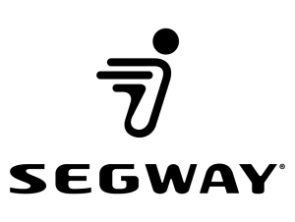
Segway
Segway Inc.
Segway Inc. is the manufacturer of the two-wheeled, self-balancing Segway PT, the Segway miniPro and other personal transporters. Founded by inventor Dean Kamen, the name "Segway" is a homophone of "segue" (a smooth transition, literally Italian for "follows").
Segway Inc., a pioneer of self-balancing personal transporters and holder of many key patents is based in New Hampshire, United States and has niche markets with police departments, military bases, warehouses, corporate campuses, and industrial sites. Since it was acquired by Chinese company Ninebot in 2015 it has developed a stronger presence in the consumer market with smaller products such as the Segway miniPro. The legality of the use of these novel personal electric vehicles on the road varies with jurisdiction as authorities respond to the novel products coming onto the market.
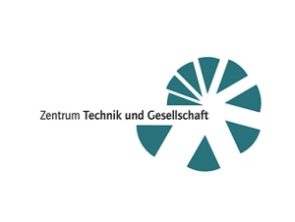
Center for Technology and Society – TU Berlin
Center for Technology and Society – TU Berlin
The Center for Technology and Society is an institution that was established to enable research beyond topical limitations. This institution explores current social relevant problems and subjects in all areas of possible conflict and discusses these with all significant scientists and others e.g. economy, civil society and governmental institutions.
Due to the social-scientific perspective, legal, economic and user- specific concerns the innovation and transform processes are put into a context of embodiment concerning technological and other configurations, thus put on a common basis. Due to the long-time experience in implementing such projects this institute has established a reputation as being a brain-trust for developing inter-disciplinary methods for research, thus resulting in diverse published media.
Our diverse research activities are reflected in our structure that subclassifies our scope of topics. Six thematic subjects that we explore and are supplemented with references to crosssectional areas. This underlining our social scientific approach. Our findings derived from the social scientific technical, energy, mobility and sustainability research are then published and presented at diverse events within the scientific communities.
The Technology and Socially Society Center supports the TU Berlin's general principal concerning current endeavours developing and solving societies future challenges.

Chris Barker Consulting – CBC
Chris Barker Consulting – CBC
Chris Barker Consulting is focused on advocating the role of technology in advancing the modernization of transportation and urban mobility. CBC provides business, communications and public policy consulting support to automakers, aerospace companies, suppliers, technology companies, transit/energy organizations, investment firms and government organizations around the globe.
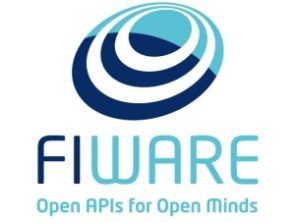
FIWARE
FIWARE
The FIWARE Community is an independent open community whose members are committed to materialise the FIWARE mission, that is: “to build an open sustainable ecosystem around public, royalty-free and implementation-driven software platform standards that will ease the development of new Smart Applications in multiple sectors”.
The FIWARE Community is not only formed by contributors to the technology (the FIWARE API repository platform) but also those who contribute in building the FIWARE ecosystem and making it sustainable over time. As such, individuals and organizations committing relevant resources in FIWARE Lab activities or activities of the FIWARE Accelerator, FIWARE mundus or FIWARE iHubs programmes are also considered members of the FIWARE community.
Independence in decision making, openess, transparency and meritocracy are the cornerstone and founding principles of the FIWARE Community. An important part of the "FIWARE Culture" is also the proper balance between the individuals who invest their time and effort, the companies that build businesses on FIWARE and the application developers who build and deploy new applications based on FIWARE technologies. The structure of the the FIWARE Community encourages all forms of contributions and provides safeguards against losing the balance between the various members of the community.
The work in the FIWARE Community is organised in dedicated teams: FIWARE Chapters, Technical Committees and Ecosystem Support Committees. FIWARE Chapters and Technical Committees deal with coordination of activities that are of technical nature, while FIWARE Ecosystem Support Committees are focused in non-technical relevant activities such as those linked to the FIWARE Accelerator, the FIWARE Mundus or the FIWARE iHubs programmes.

INFRANEU
INFRANEU
INFRANEU is the "German Main Association for Infrastructures and Sustainability" (since 2011).
It was founded in December 1994 in Berlin as the "Main Association for Infrastructure in the new federal states". It is an association of
- private and public companies
- scientific institutions
- municipal partners
- professionals and political multipliers.
The focuses of INFRANEU are sustainable infrastructure solutions for all kinds of social, economical, cultural and ecological needs. Taking into consideration the increasing European integration and global challenges it has also shifted towards European countries and China. We are guided by the findings of the Brundtland Commission and are partner of the Club of Sophia.
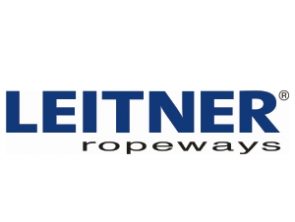
LEITNER ropeways
LEITNER ropeways
From the highest peak to the liveliest part of town – LEITNER ropeways is your connection!
LEITNER ropeways – one of the world’s leading developers and producers of ropeway transport systems – has always relied on its unique strengths that customers around the world appreciate: Premium development quality meets peerless design and outstanding comfort, safety and reliability standards. The company focuses in particular on the perfect overall package, developed in-house and tailored to the customer’s specific requirements: from the drive system and control technologies right up to the cabins and station buildings. Besides being used for winter sports, demand for this expertise is also growing strongly in cities and the tourism sector.
With its products, LEITNER ropeways demonstrates its qualities as a premium provider, while also responding individually to a wide range of requirements. The company’s many products are still unique and unrivaled worldwide to this day. For example the LEITNER DirectDrive, which is the centerpiece of many ropeways and has been setting standards for drives for 15 years. Developed, produced and installed on-site by LEITNER ropeways, it impresses customers around the world with four unbeatable attributes: reliability, energy efficiency, environmental friendliness and silent running.
LEITNER ropeways’ recipe for success includes working with the team from Italian design studio Pininfarina. In addition to the striking Symphony gondolas, the upgraded EVO gondolas, and a station with innovative design and functions now make up the successful “Pininfarina collection”.
With these products, LEITNER ropeways is pointing the way forward when it comes to quality – from the highest peak to the liveliest parts of cities like Mexico City or Berlin.
The IGA “Gardens of the World” ropeway, which gives visitors a whole new perspective on the International Garden Show in Berlin, is an innovative example of successful urban use of LEITNER ropeways products. The wheelchair-accessible ropeway is an experience and a means of transportation rolled into one as it provides a link to the U5 subway line, allowing the exhibition site to be reached quickly from the city center and connecting the two districts of Marzahn and Hellersdorf in a particularly sustainable and effective way.
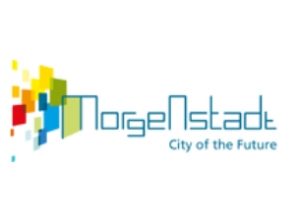
Morgenstadt
Morgenstadt Global Initiative (Fraunhofer Society)
Morgenstadt:city insights
11 different Fraunhofer institutes, 14 cities of varying sizes and 22 companies engaged in activities from automotive development to urban planning have come together to create the innovation network »Morgenstadt: City Insights« in order to collaboratively conceptualize and realize the future of an integrated, sustainable, liveable and resilient city of tomorrow. The objective of Morgenstadt is to help cities best utilize and help define this transformation process with the aim of creating more sustainable, liveable cities. Taking a holistic perspective on urban challenges, we aim to collaboratively develop solutions for urban problems, facilitating new partnerships and connecting all relevant stakeholders at an early stage. The Morgenstadt partners can draw on a large repertoire of possibilities and research results, which have been developed since 2012.
Mobility Concepts and Mobility as a service
The technological shift towards electric mobility and the need for new, sustainable mobility concepts in urban and rural areas, raises the expectations of industry and cities. In individual industrial as well as national and international funded projects, the competence center develops strategies and systemic solutions for the market-driven implementation of sustainable mobility. Current projects for example are about creating future scenarios for construction types and quantities of electric power units, implementation guidelines for the integration of electric mobility in European cities, as well as the development of business models for operational e-mobility. Furthermore, interdisciplinary joint projects, in which technological and competition-relevant potentials for the actors on the market are being identified and made useful, can be named as part of our expertise.
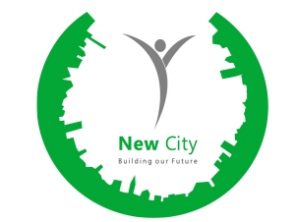
New City
New City
New City was founded by Mrs. Alejandra Labarca who was the former Director of the Cities of Tomorrow Area at the Fraunhofer Chile Research Foundation in Chile. Our mission is to contribute to have a better world through the building of intelligent and sustainable cities where the citizen id the center of every action. New City believes in the power of people to change the world. Smarter cities and citizens are our objective
- We are network articulators in the smart city domain
- We design activities to for the knowledge, technology and good practices transfer
- We support the organization of dialogues, meetings, seminars regarding smart cities needs and new practices and technologies etc
- We create, design, organize and manage projects with many stakeholders and new technologies for the cities.
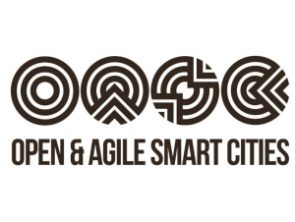
OASC
OASC (Open & Agile Smart Cities Initiative)
The Open & Agile Smart Cities initiative (OASC) is a city-driven, non-profit organisation. The overall objective is to create a Smart City market. OASC was founded in January 2015 and came to life with the first wave of cities joining in March 2015. OASC continues to grow.
OASC kickstarts the use of a shared set of methods to develop systems and make them interoperable across a single city as well as between multiple cities. Today’s smart cities are pioneering solutions that improve local practices while promoting sustainable job creation. OASC provides the network for cities all over the world to share best practices, compare results, and avoid vendor (and city) lock-in while advocating for de facto standards.
Smart City market through four de facto standards
Global de facto standards for portability and interoperability provide a clear path to creating a true global market for smart city services. OASC advocates cities to adopt four simple mechanisms as de facto standards. The first mechanism is a driven-by-implementation approach: This implies, among other things, that communities and developers can co-create their services.
The other three mechanisms are technical: an API, a set of data models, and an open data platform, which are described more precisely in the Open and Agile Smart Cities Background Document.
Companies benefit from the OASC initiative as they can now offer services that comply with these mechanisms to help cities with implementation. Interested companies can be listed on the initiative website and can join us at events.
The initiative is governed by the OASC Task Force and overseen by the Connected Smart Cities Network Board. However, cities remain in charge and each country is represented on the Task Force with one Task Force member.
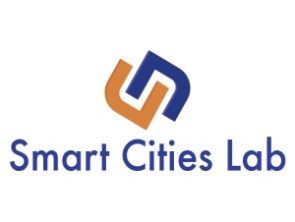
Smart City Lab
Smart Cities Lab
Smart Cities Lab, originally set up in London, Hamburg & Mumbai, is a collaborative initiative aiming for development, delivery and export of smart ICT and mobile based services and products in the following priorities areas - Smart Cities, e- Health, Energy, Environment, Agrifood and Logistics. Smart Cities Lab is actively promoting FIWARE and OpenStack technologies and cooperation of national and global companies, universities and clusters with relevant counterparts. Although borne in Europe, the open community FIWARE platform has been promoting international markets in the last years. Actually, the Lab is setting the technical backbone for Smart Mobility as a Service, based on FIWARE and Open Stack.
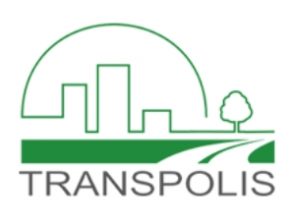
TRANSPOLIS
TRANSPOLIS - Exploring Innovative Urban Mobility Solutions
TRANSPOLIS is the unique smart city lab in Europe dedicated to innovative transportation systems and road equipment. TRANSPOLIS offers a 200-acre site for the reinvention of urban mobility solutions through systemic innovation and strategic partnerships.
TRANSPOLIS S.A.S. is a privately held services company created in 2011 by 7 major international players: RENAULT TRUCKS, COLAS, AIXAM (POLARIS Inc. USA), VIBRATEC, EVE SYSTEM, ADETEL and the research center IFSTTAR. Our mission is to help our clients innovate in the field of urban mobility and intelligent transportations systems.
Before 2011, TRANSPOLIS has been incubated by the french cluster LUTB transport & mobility systems.
The commitment of the founders reflects their understanding of the urgency to design and implement major innovations that will anticipate future needs in urban mobility and transportation systems.
TRANSPOLIS is developing the UNIQUE SMART CITY LAB at scale 1 in EUROPE for urban mobility and innovative transportation systems, a place where French and international groups innovate with a systemic approach (vehicles, energy, networks and telecoms, road equipment, infrastructure, IoT...).
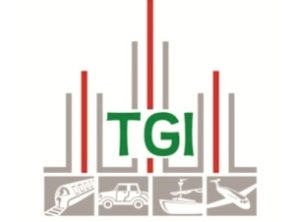
Transportation Growth Initiative
Transportation Growth Initiative (TGI)
African countries suffers a barrage of problems challenging their development, from infrastructure to material, financial and human capacity which are crucial for the continent to be at per with her counterparts elsewhere. A cardinal necessity in this regard is efficient and sustainable transportation. In order to provide the fulcrum for galvanizing resources to achieve transportation efficiency, the Transportation Growth Initiative was incorporated as an independent, non-profit organization by stakeholders in the transportation and related industries in 2011. Key objectives of TGI is Transportation research, Human resource development and networking of local and international stakeholders. It began its journey with 7 member organizations composed mainly of government ministries/agencies relating to transportation and research institutes, but has grown over the years to 27 government agencies relating to transportation, 5 universities, 4 research institutes, 4 transportation unions, 9 corporate private transportation related companies, and several academics and individual transportation experts.
The main aim of TGI is to provide scientific appraisal of current transportation situation, recommend adaptable best practice initiatives and interventions to decision makers and other authorities on all modes of transportation. The TGI is supported by government at federal and state levels as well as key stakeholders and hosts annual transportation conference that brings together, engineers, scientists and other transportation professionals from the academia, practitioners, politicians and the general public, the first edition of the conference held in 2016. TGI also host quarterly modal based mobility dialogue and generate expert recommendations to authorities, amongst other activities.
Contact: Website: www.tgi.org.ng Email: info@tgi.org.ng, tgi.secretariat@gmail.com Phone: +234(0) 8035994482

